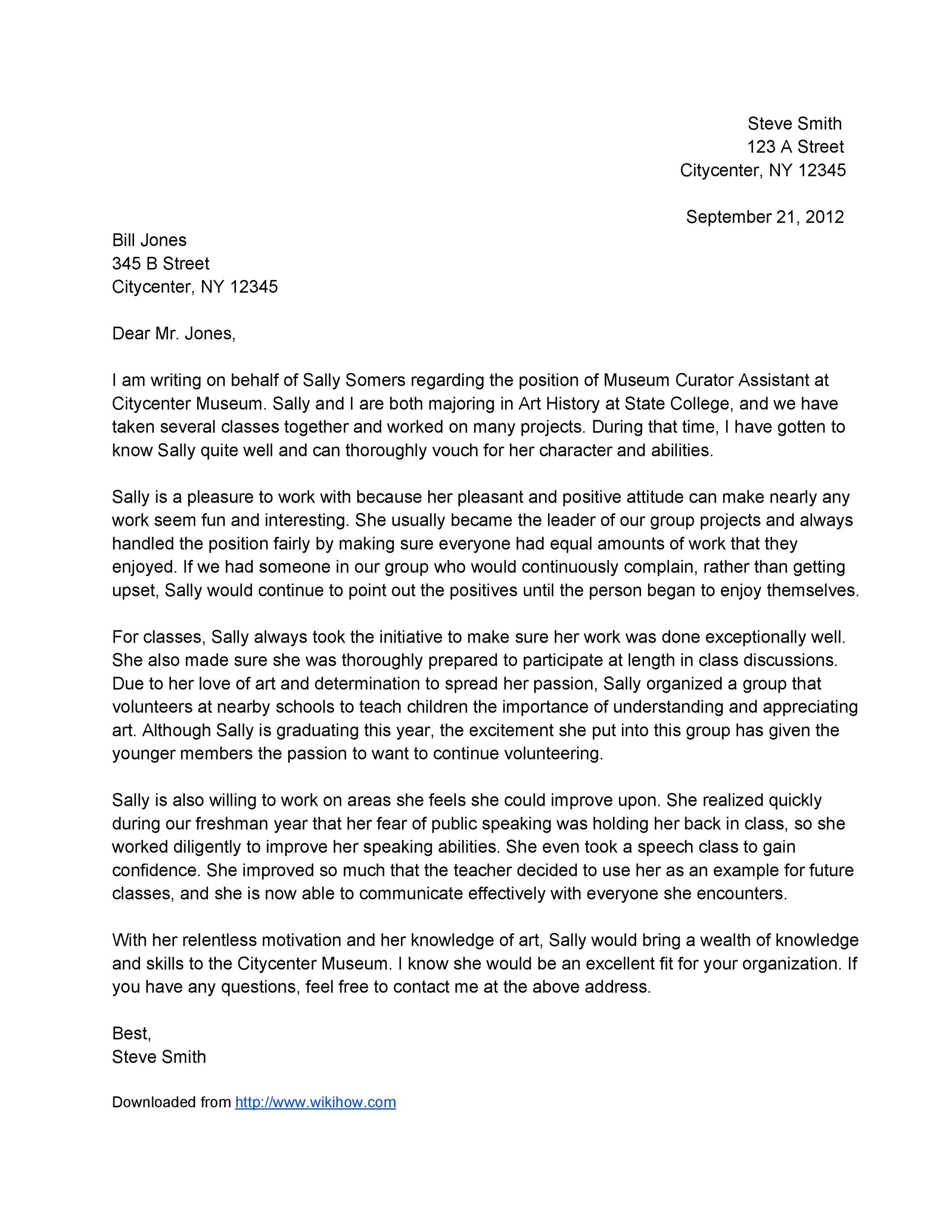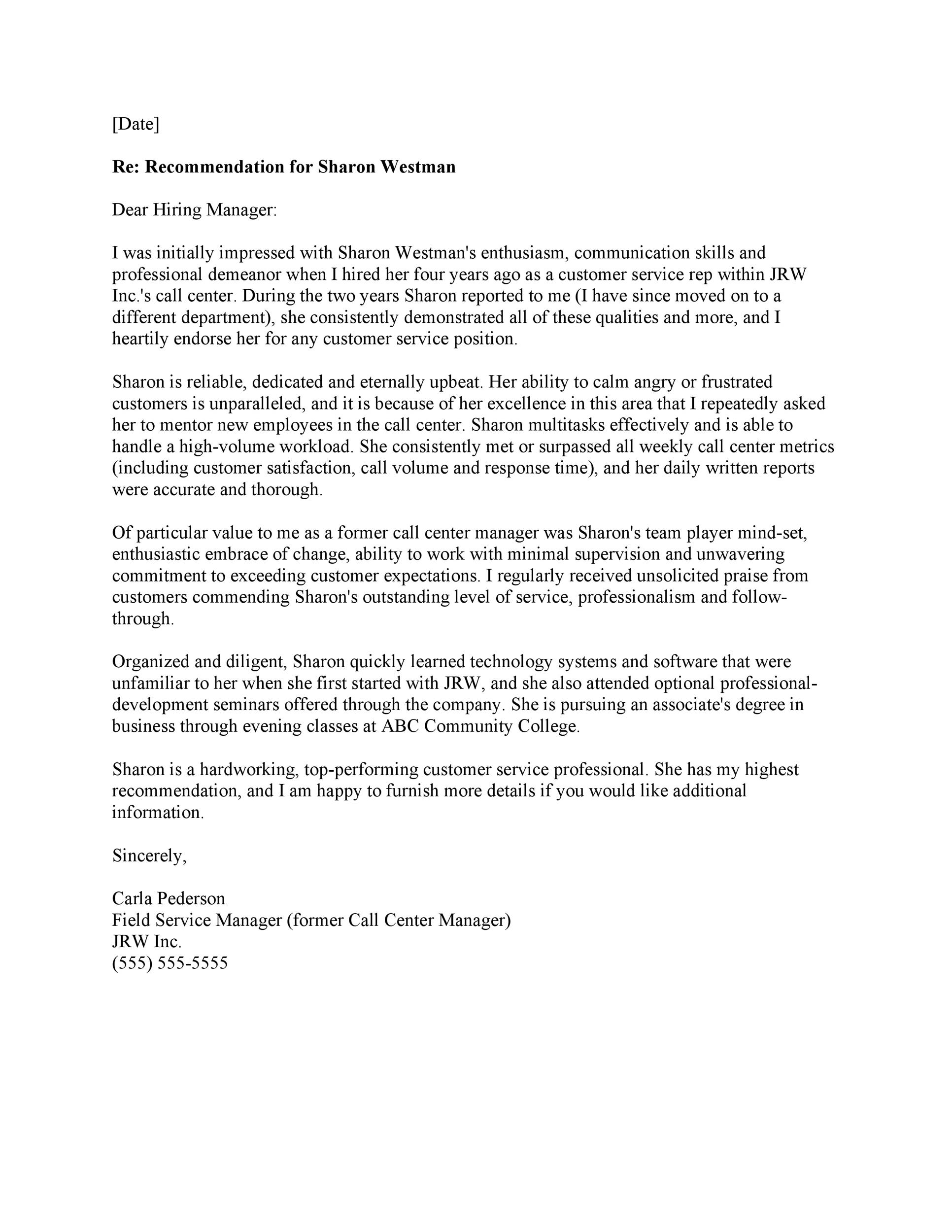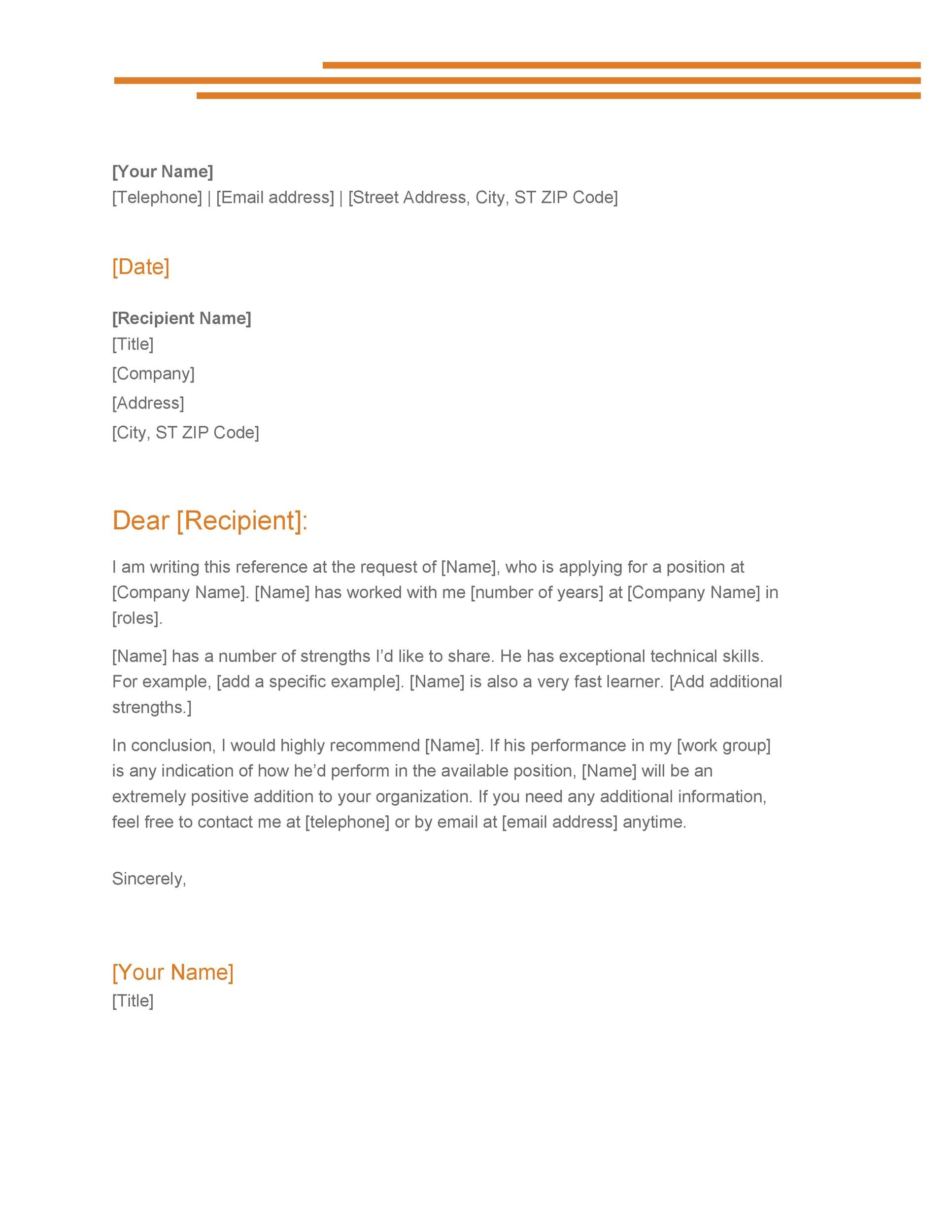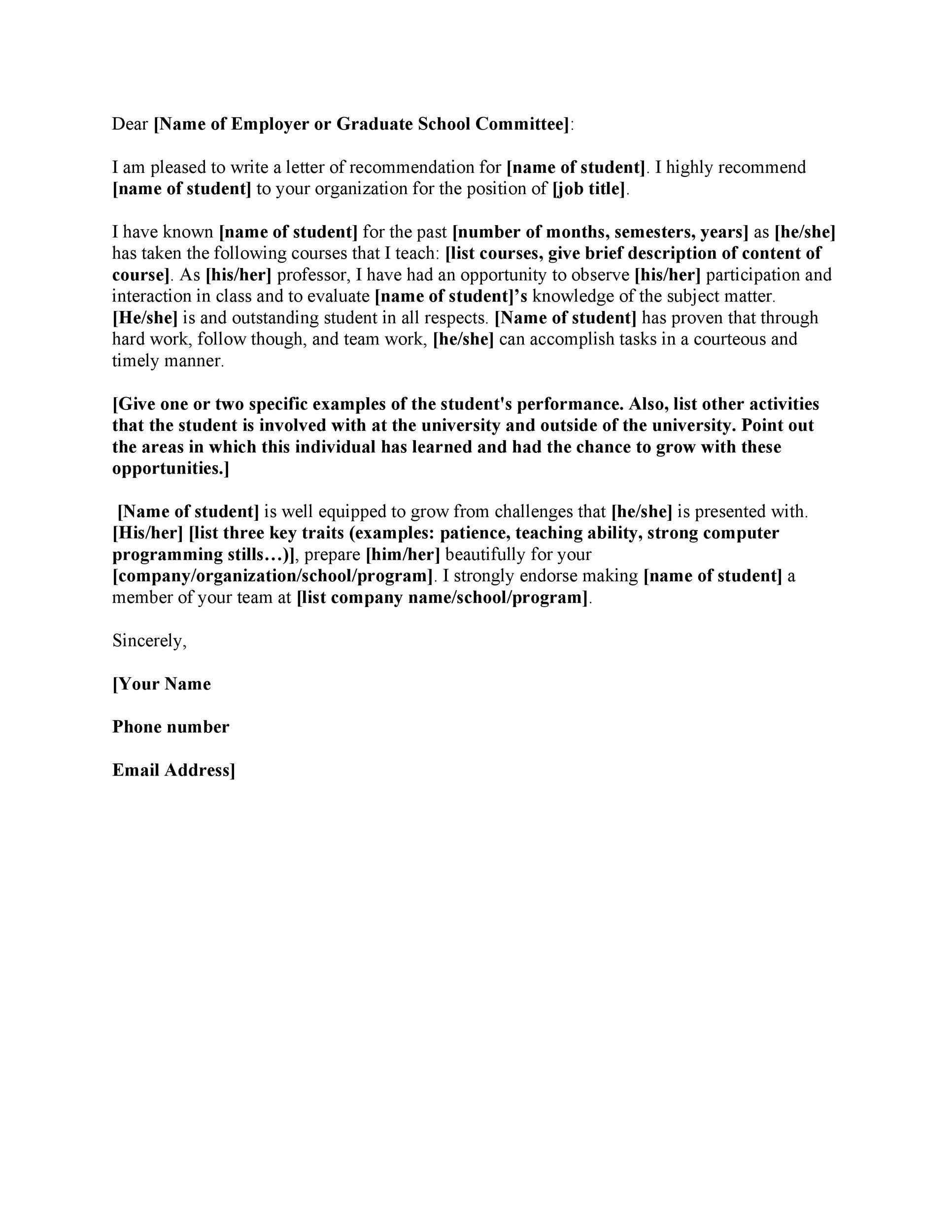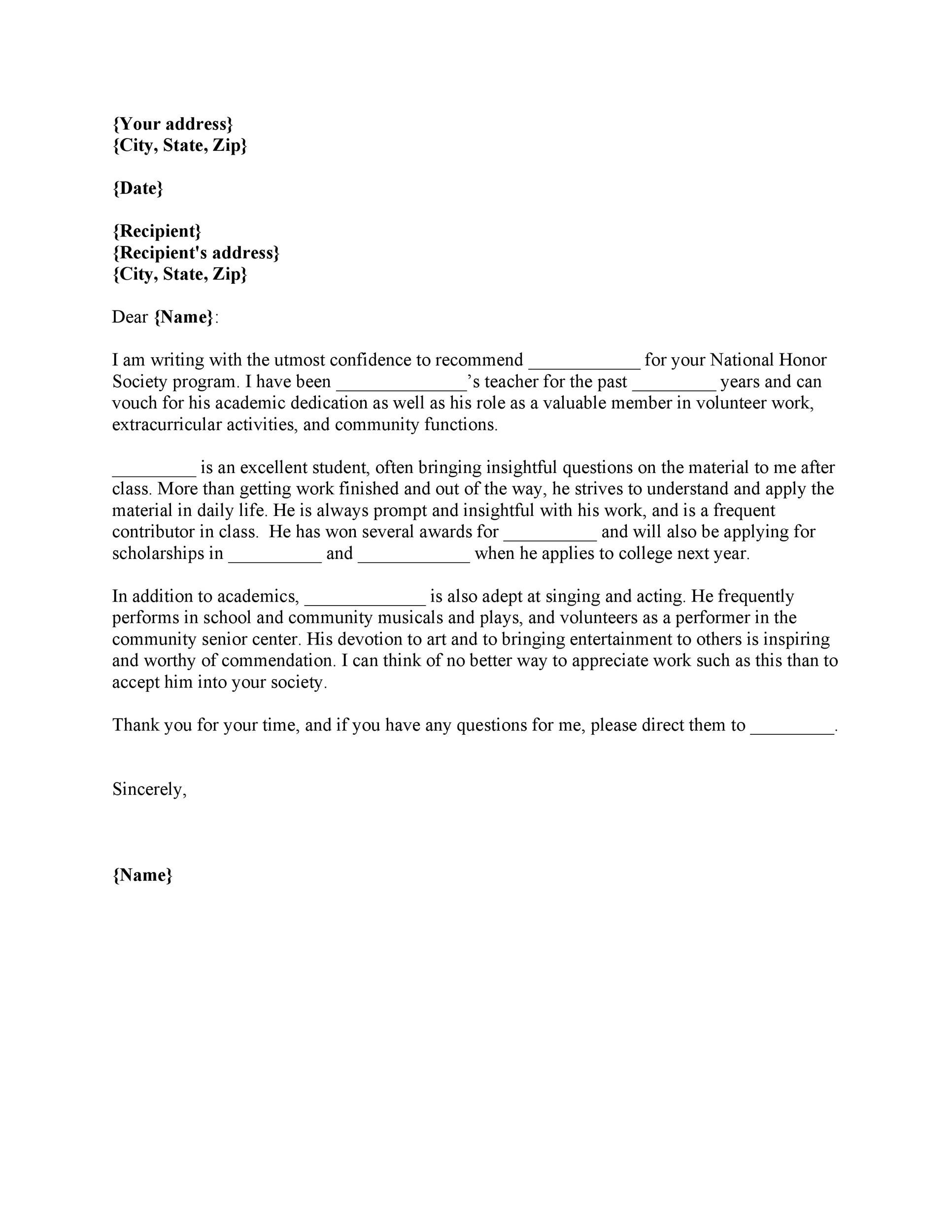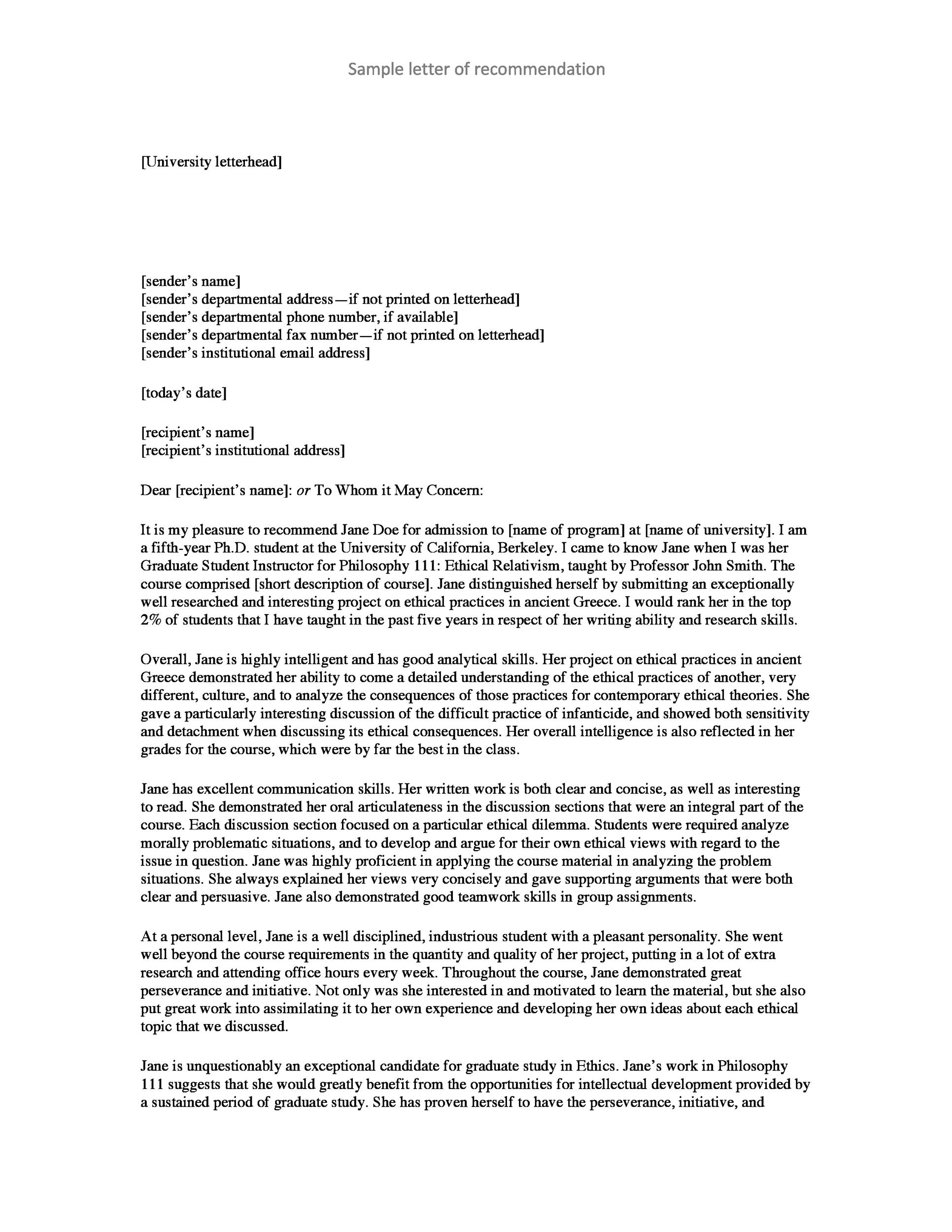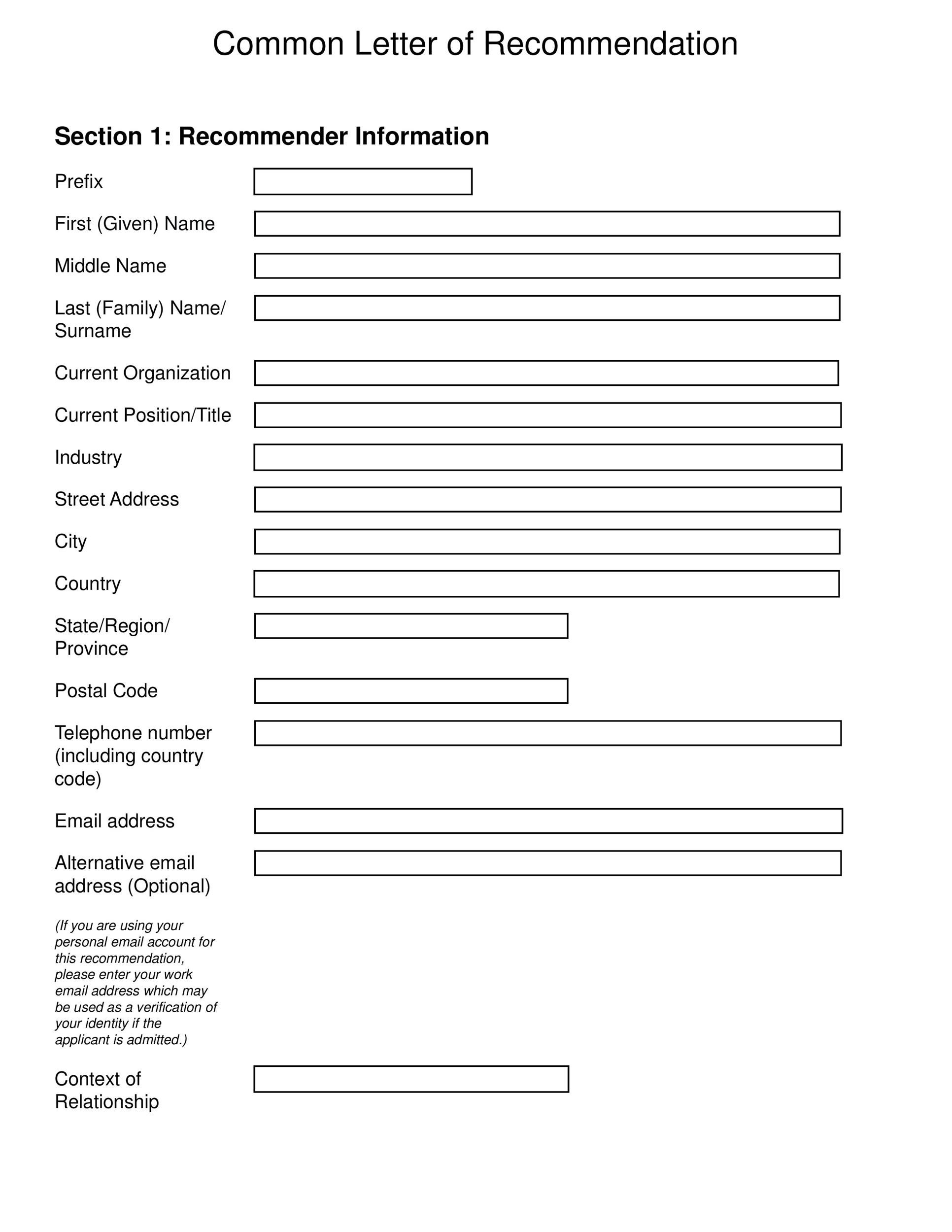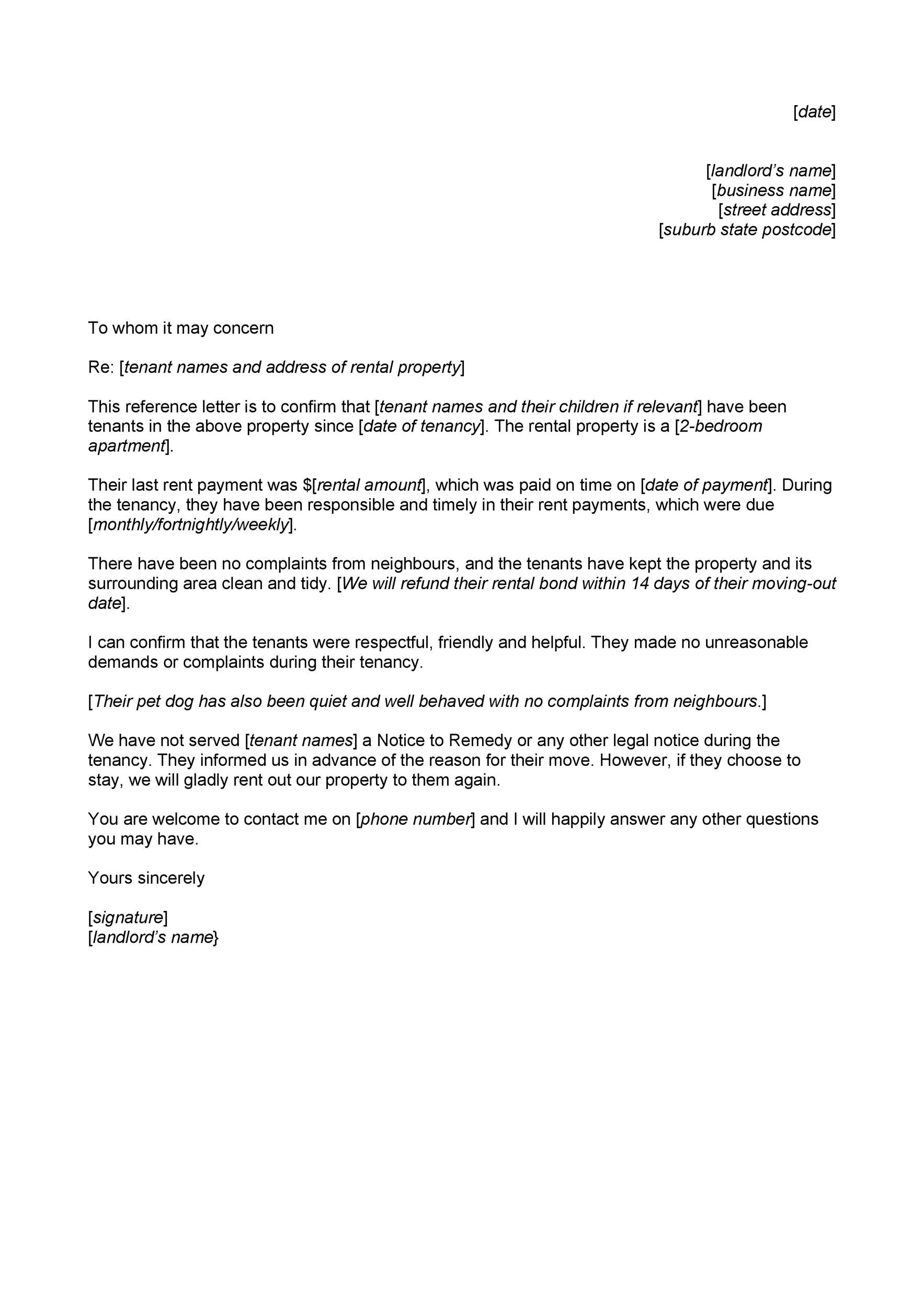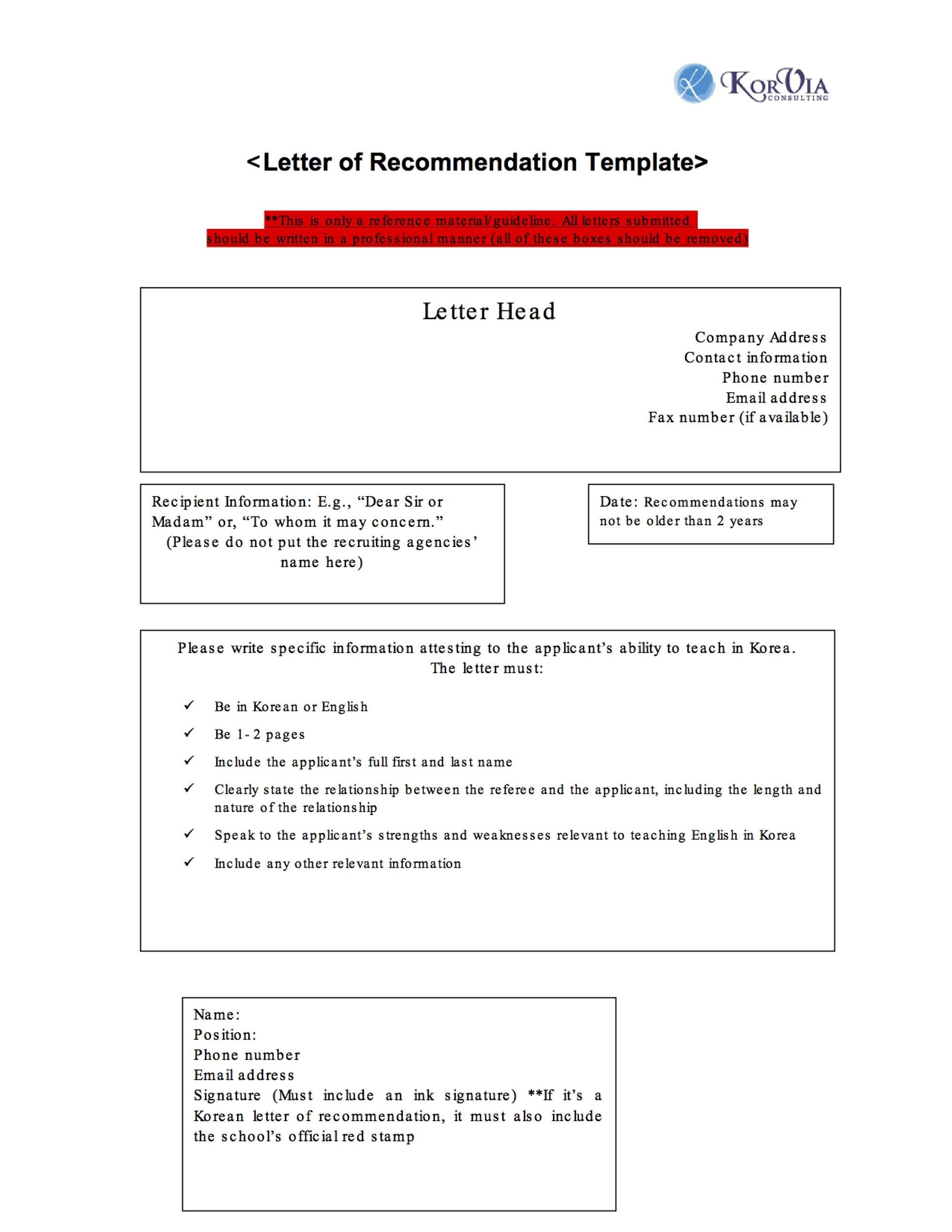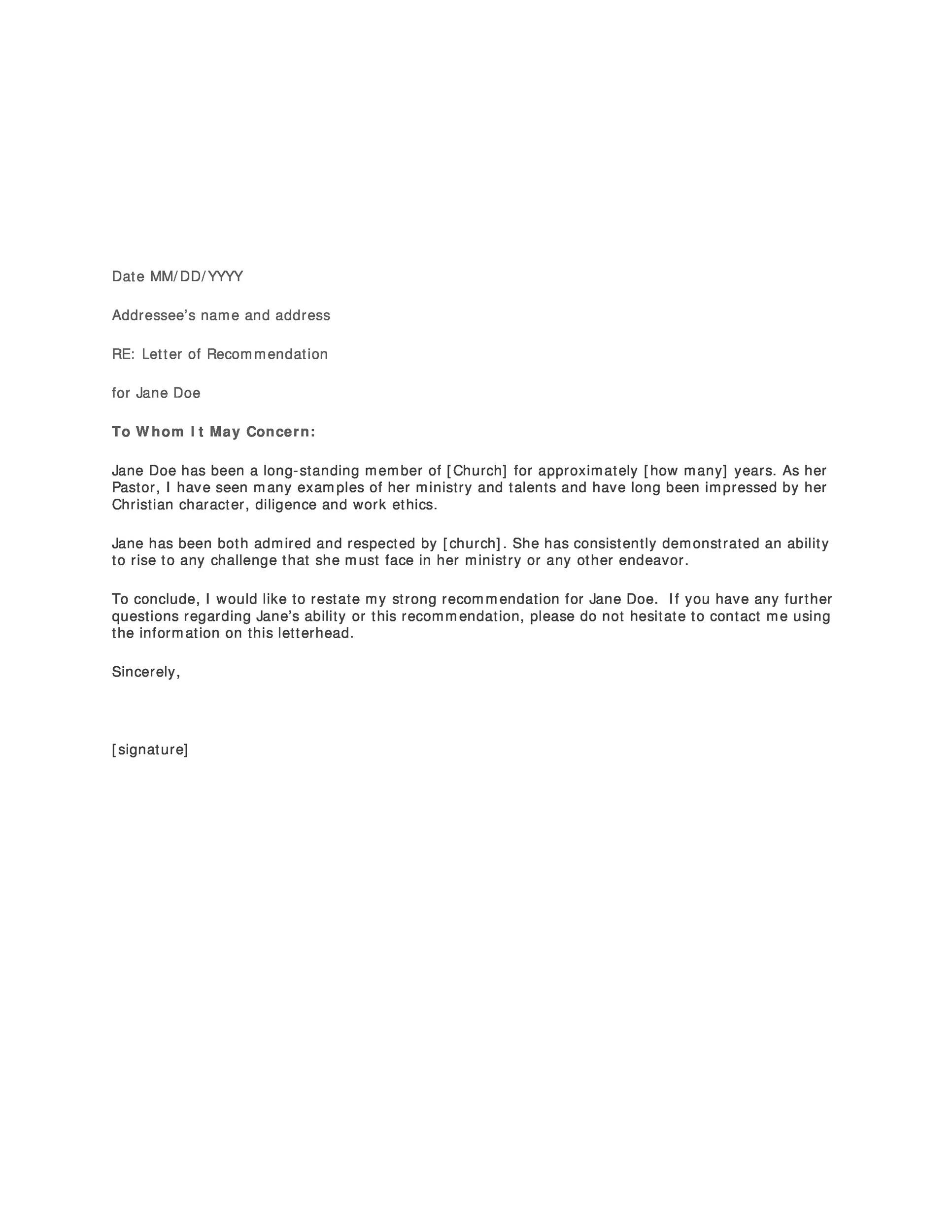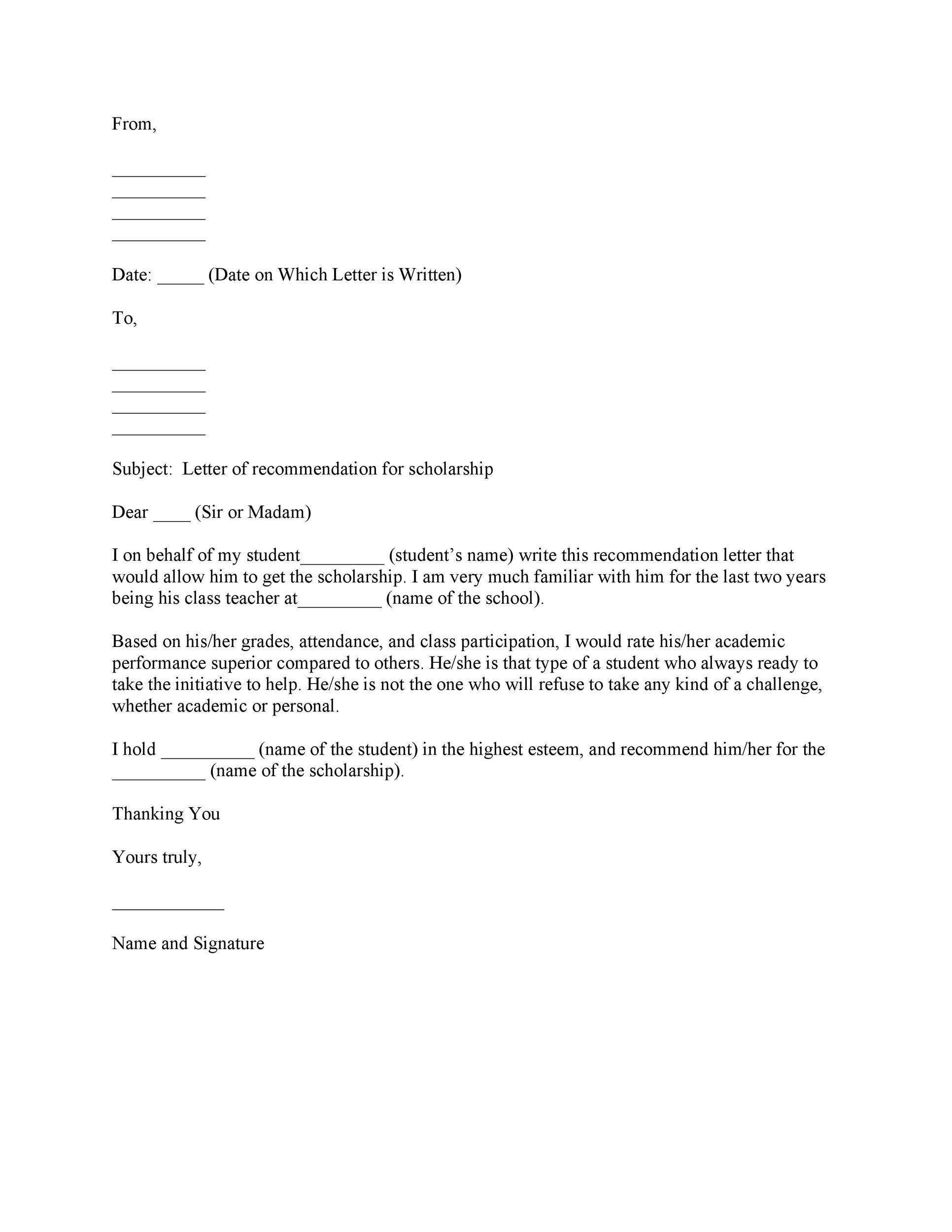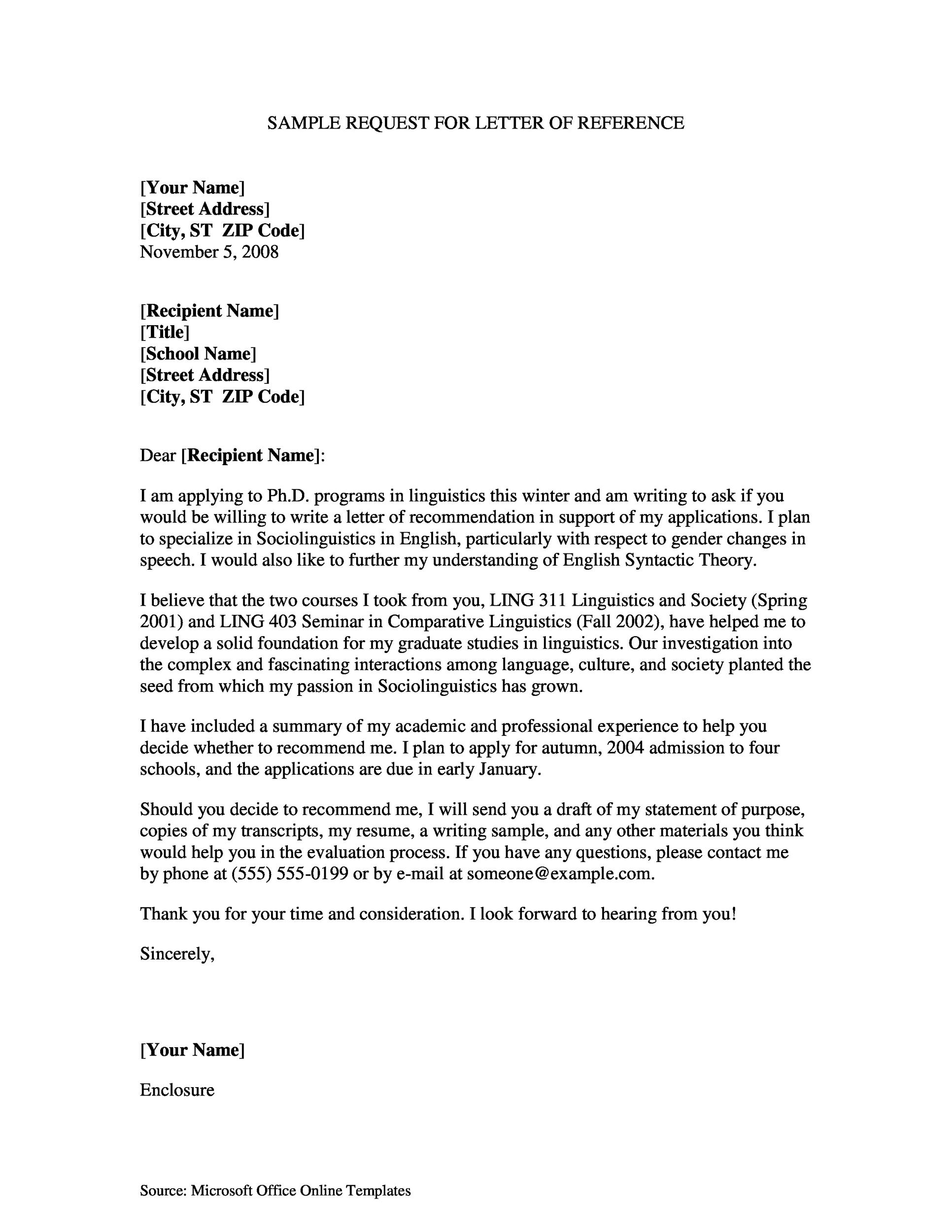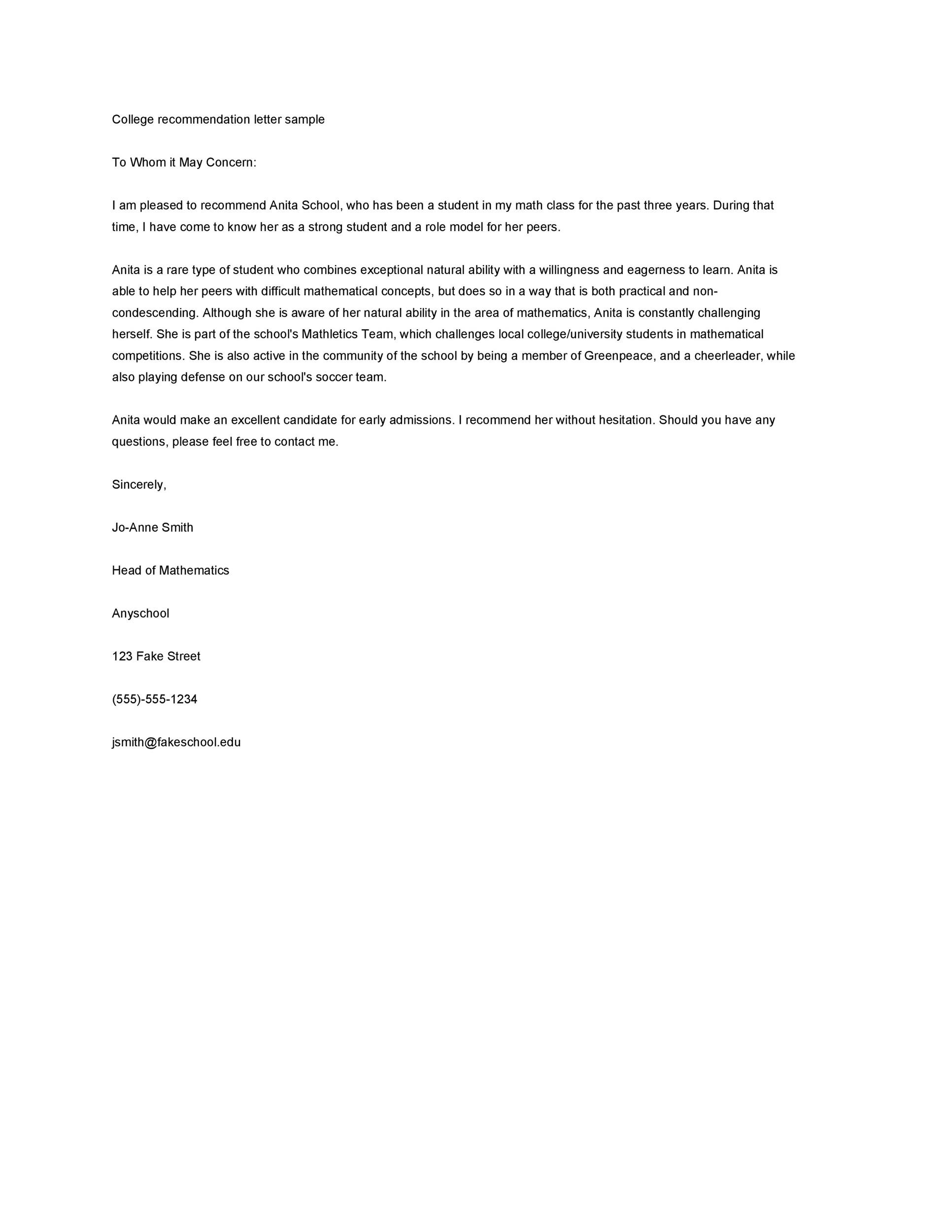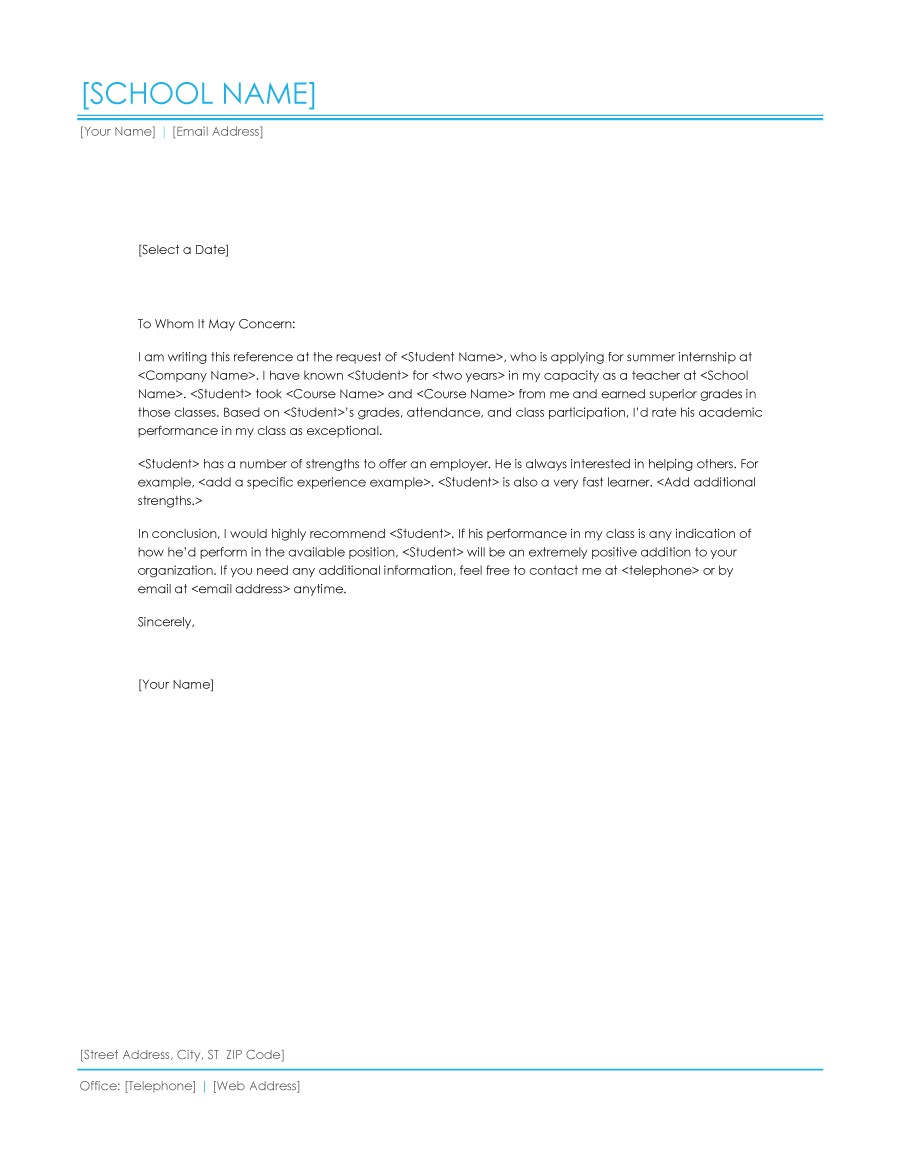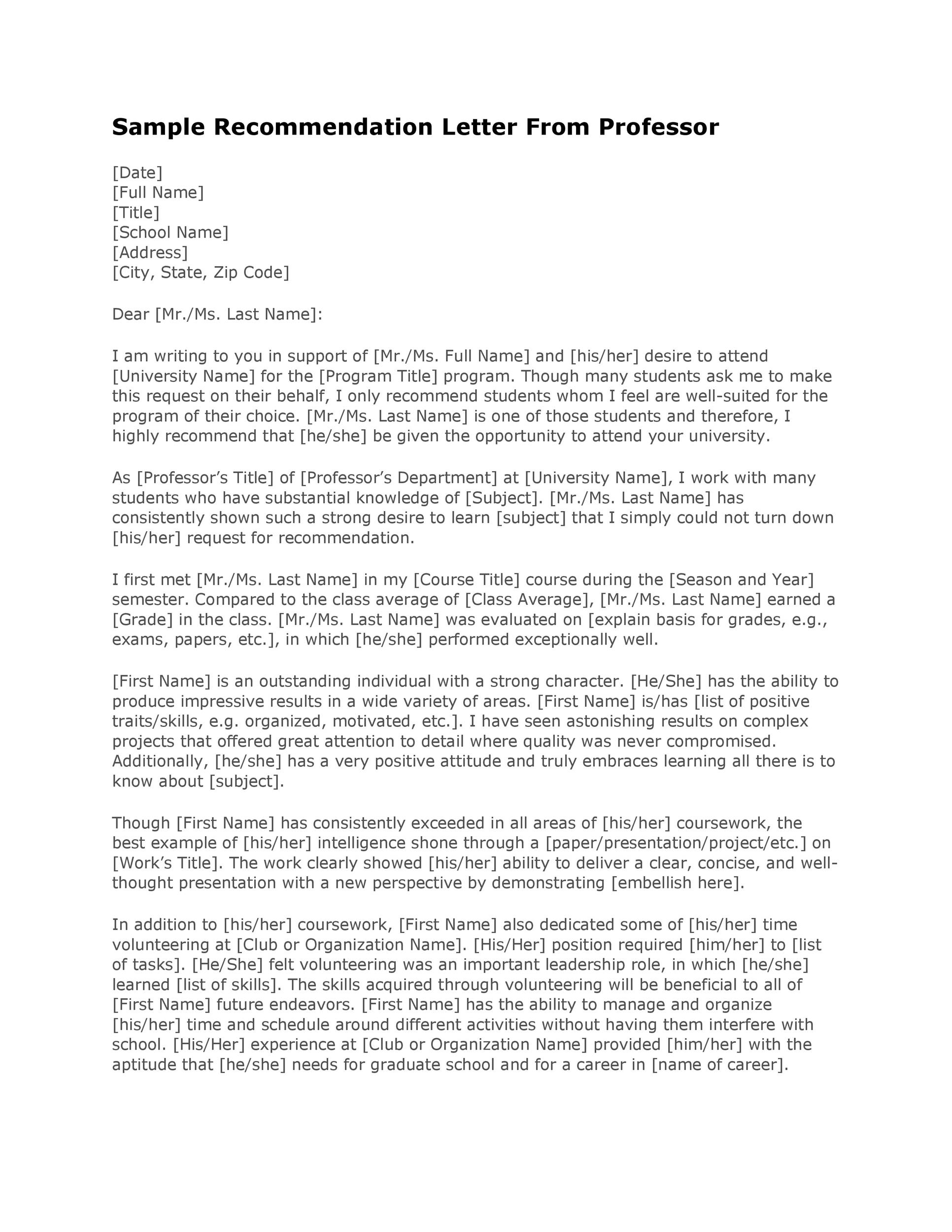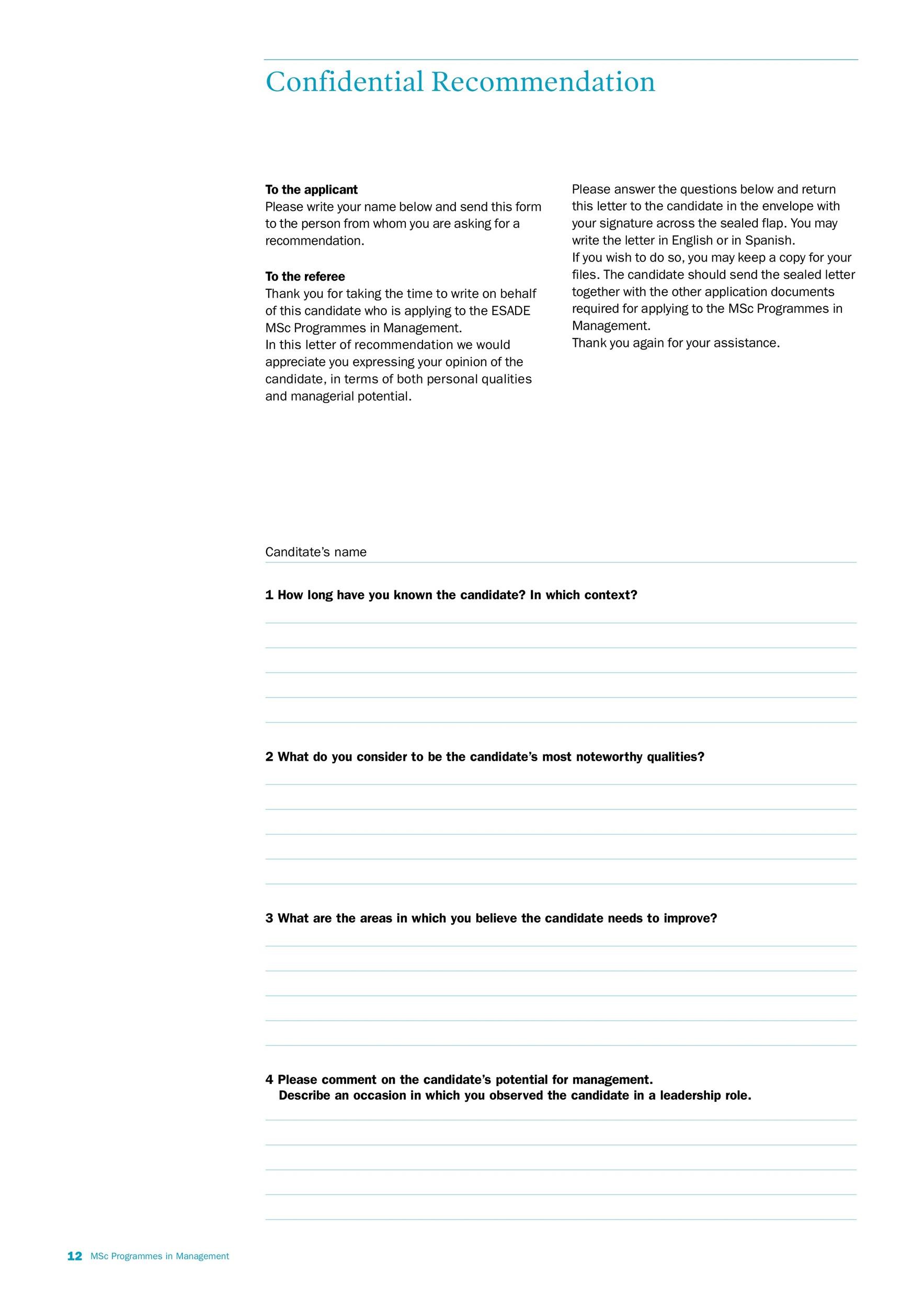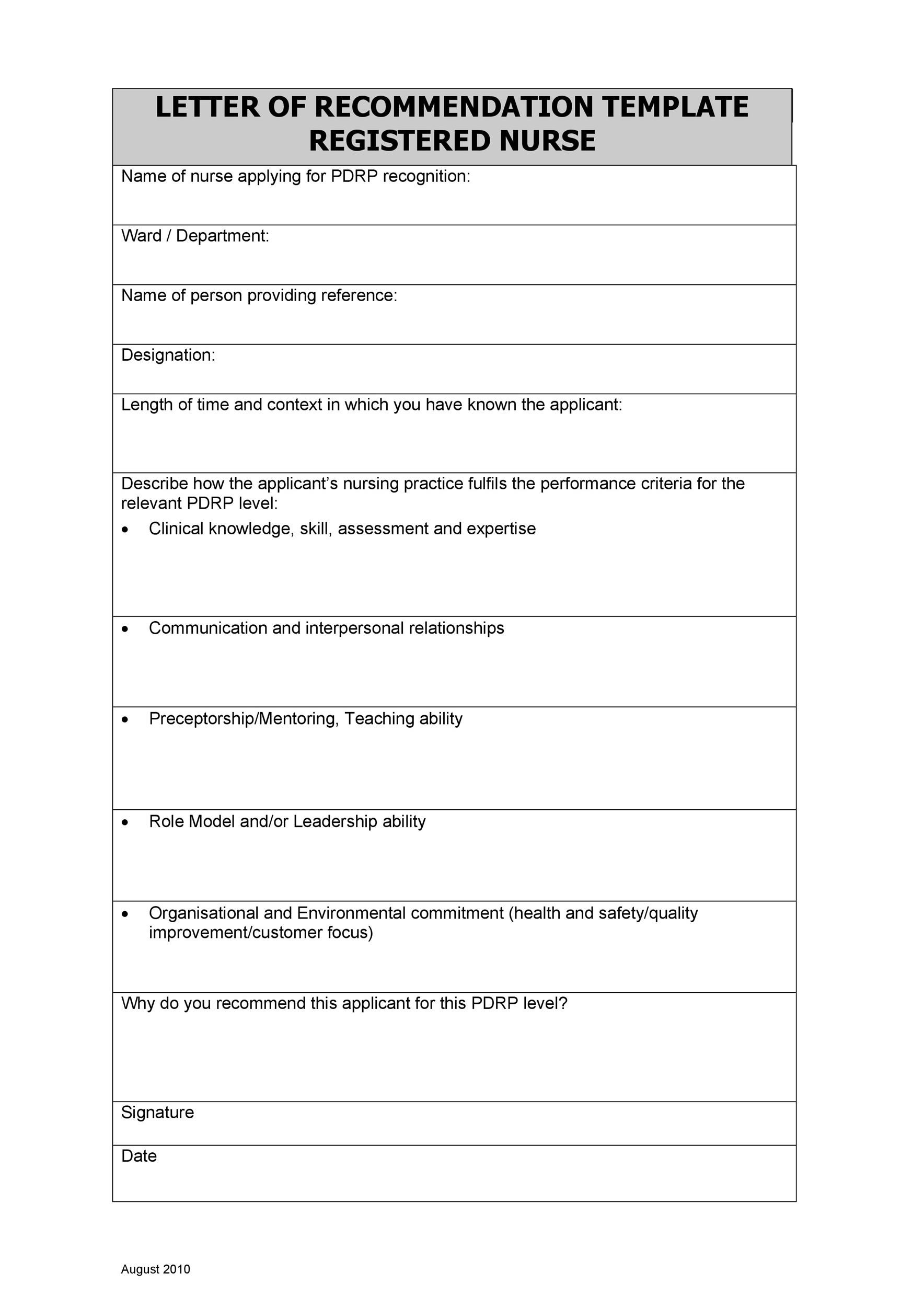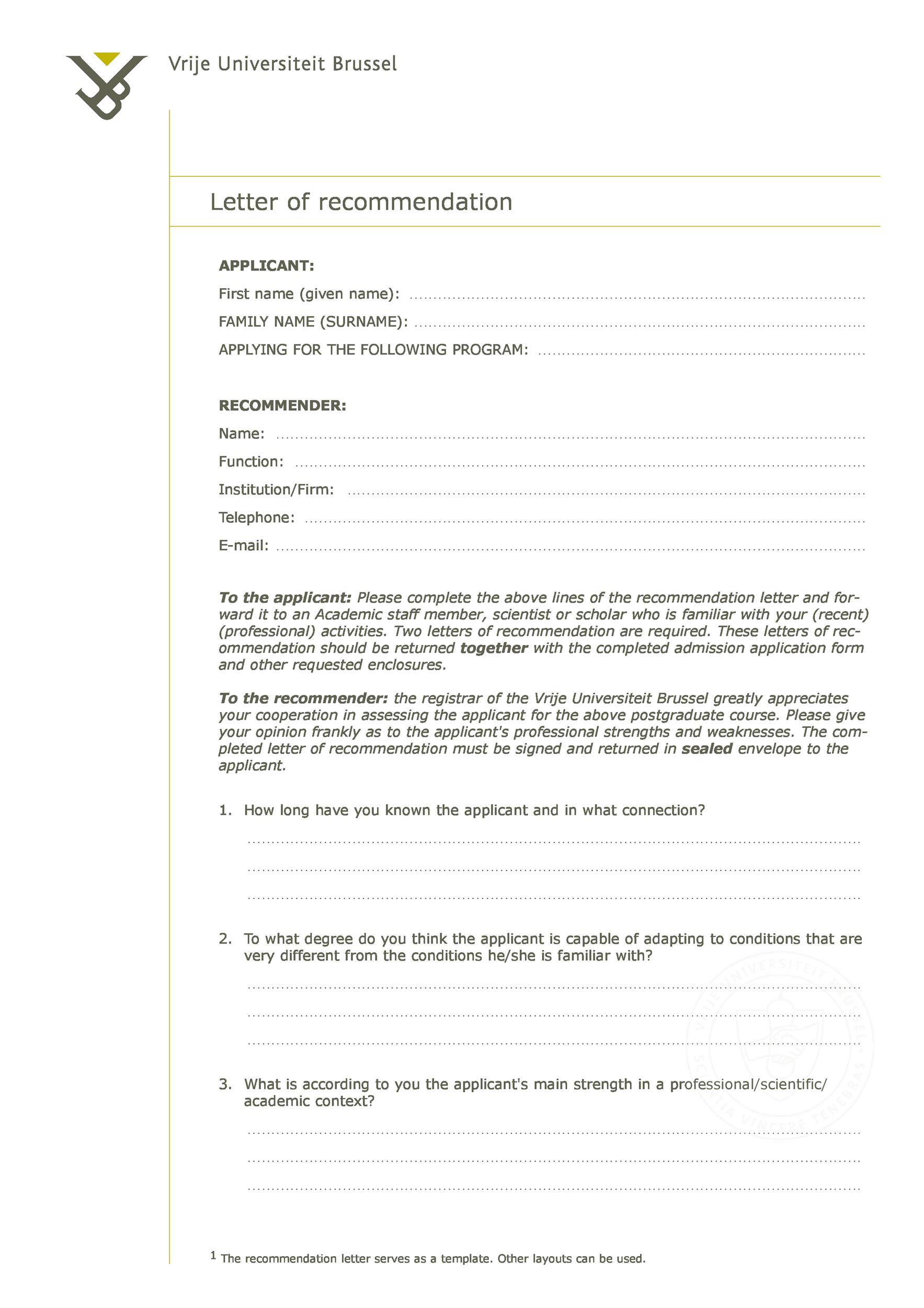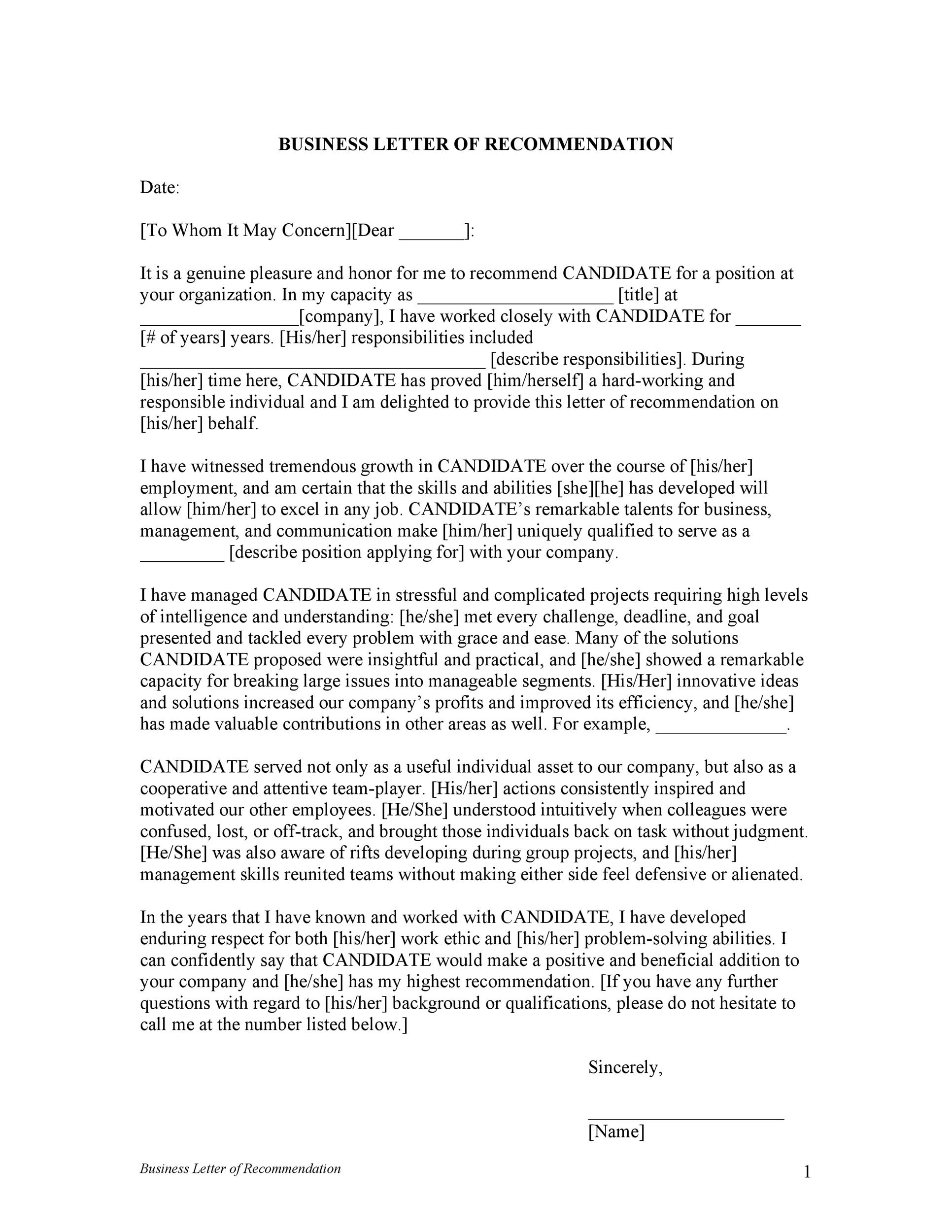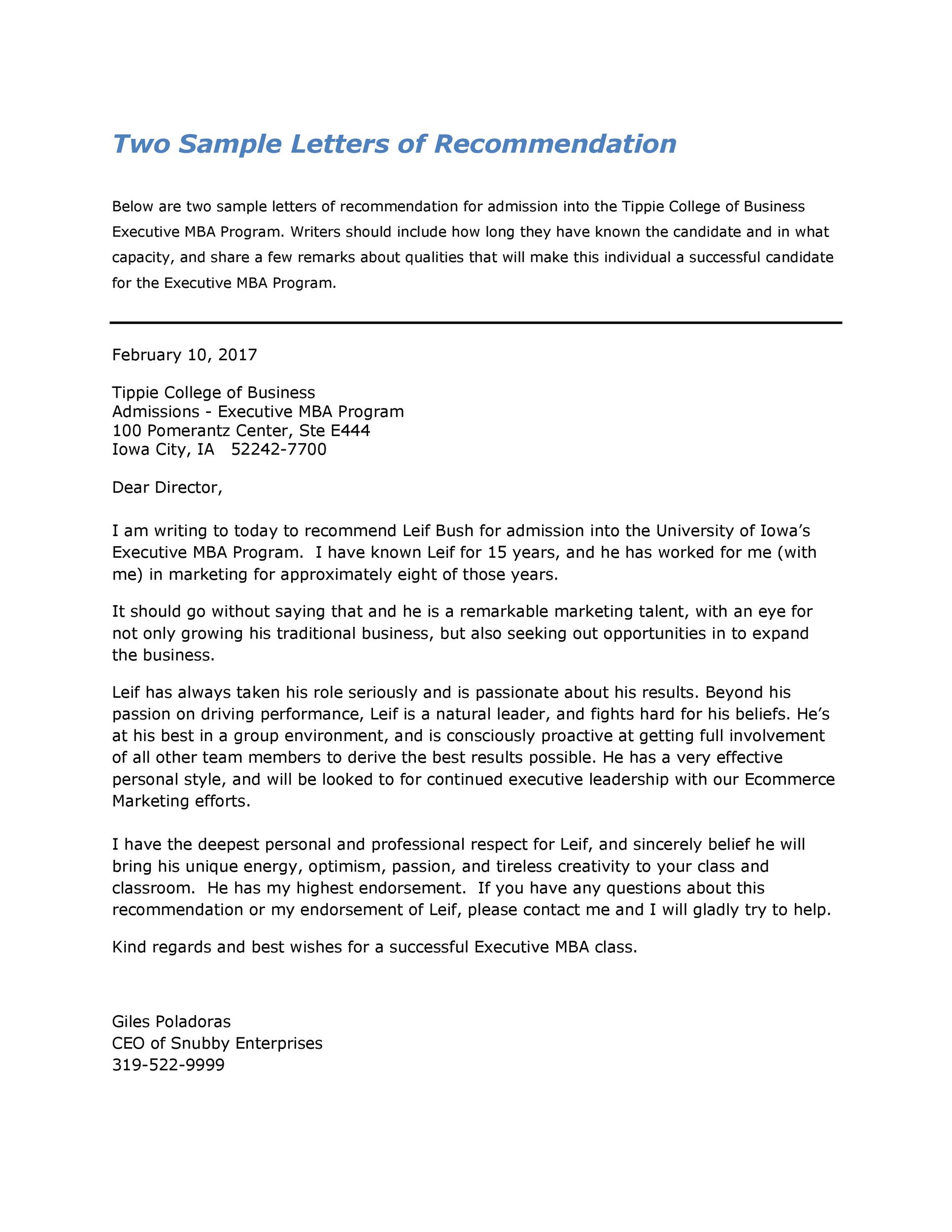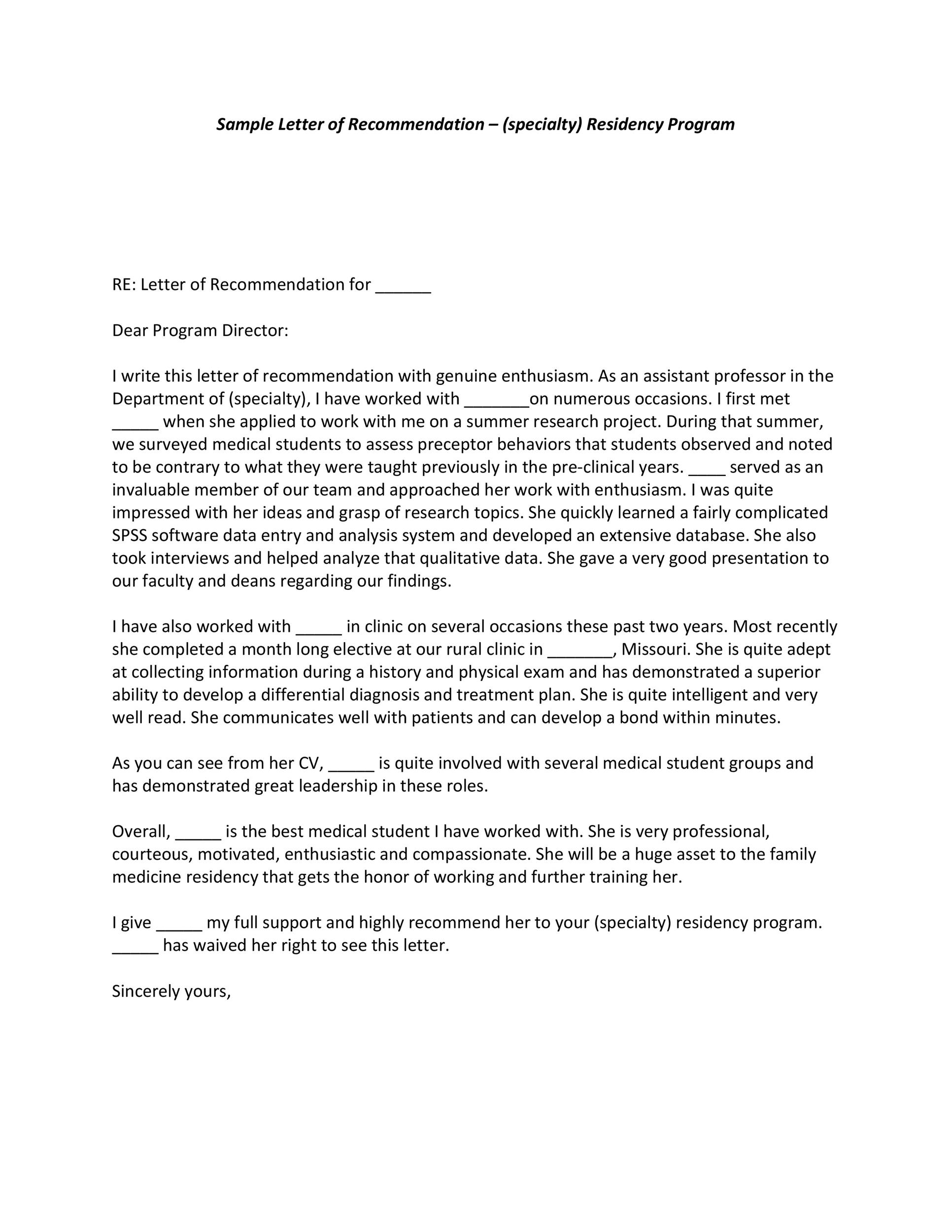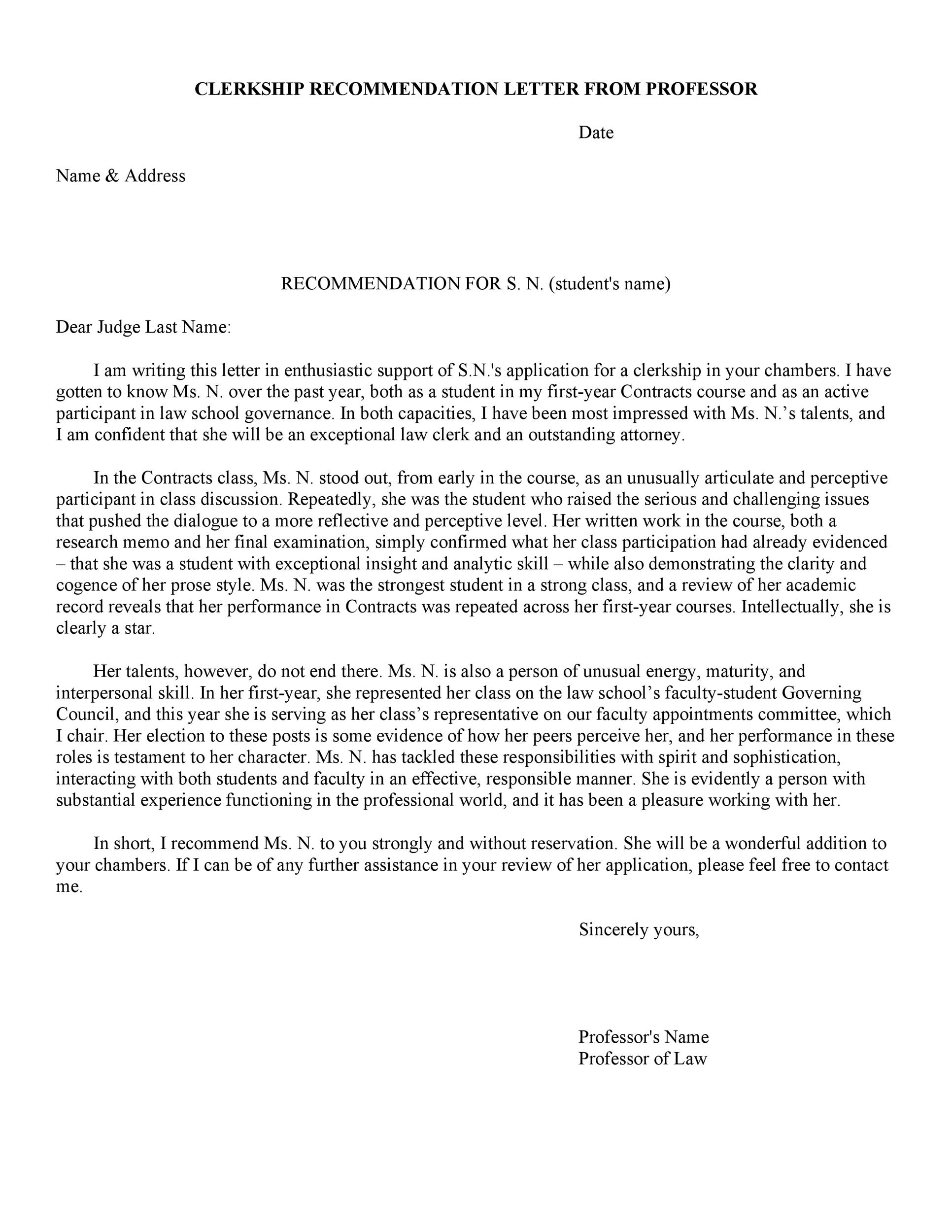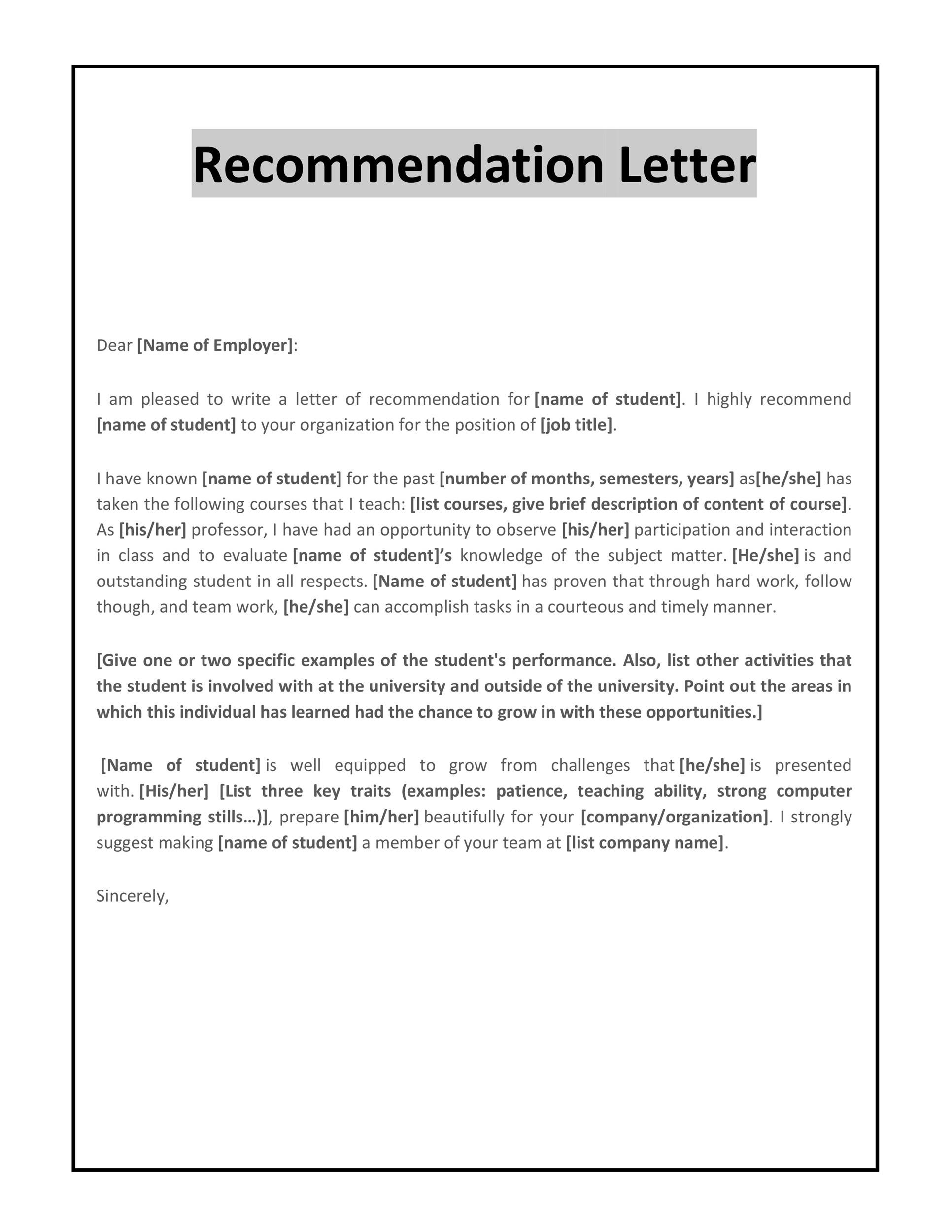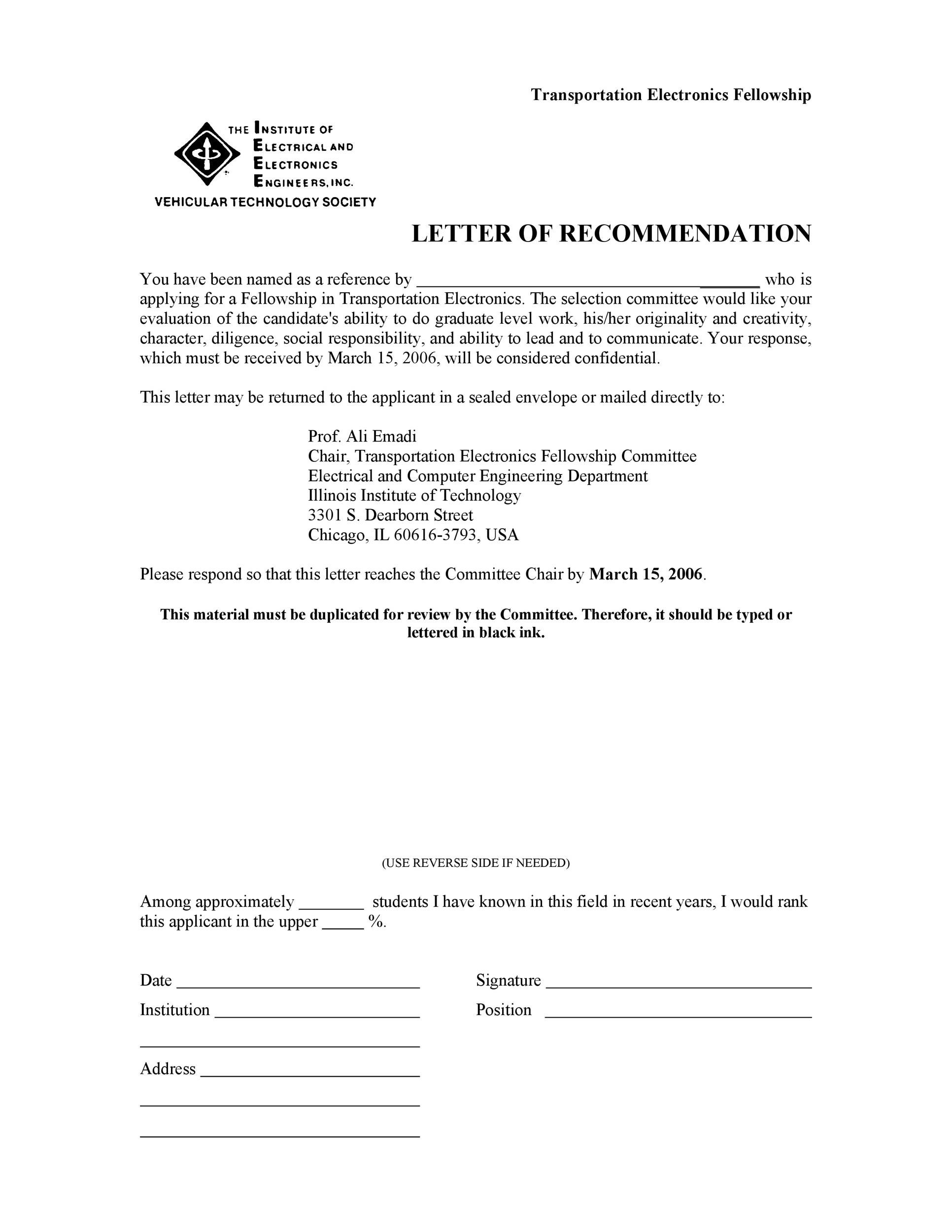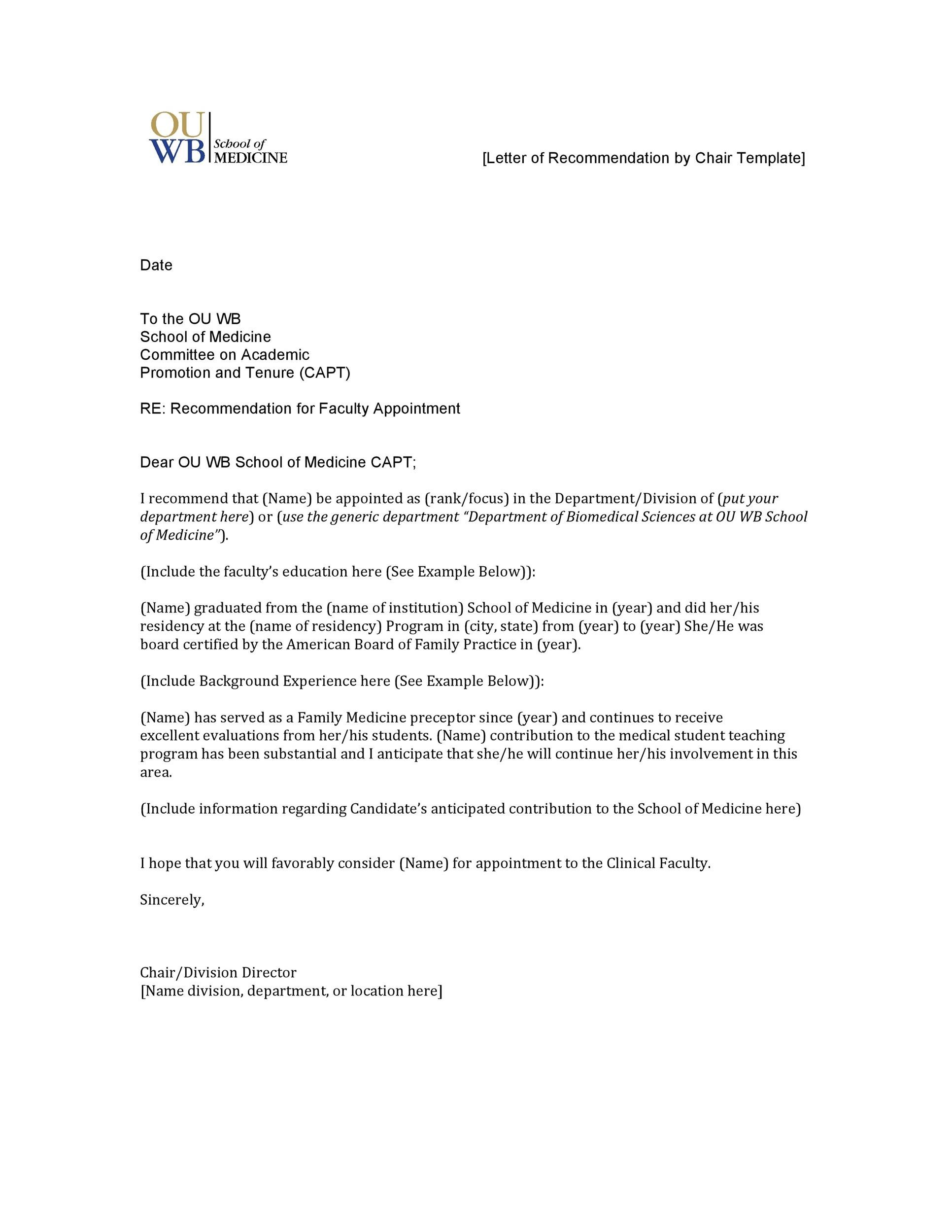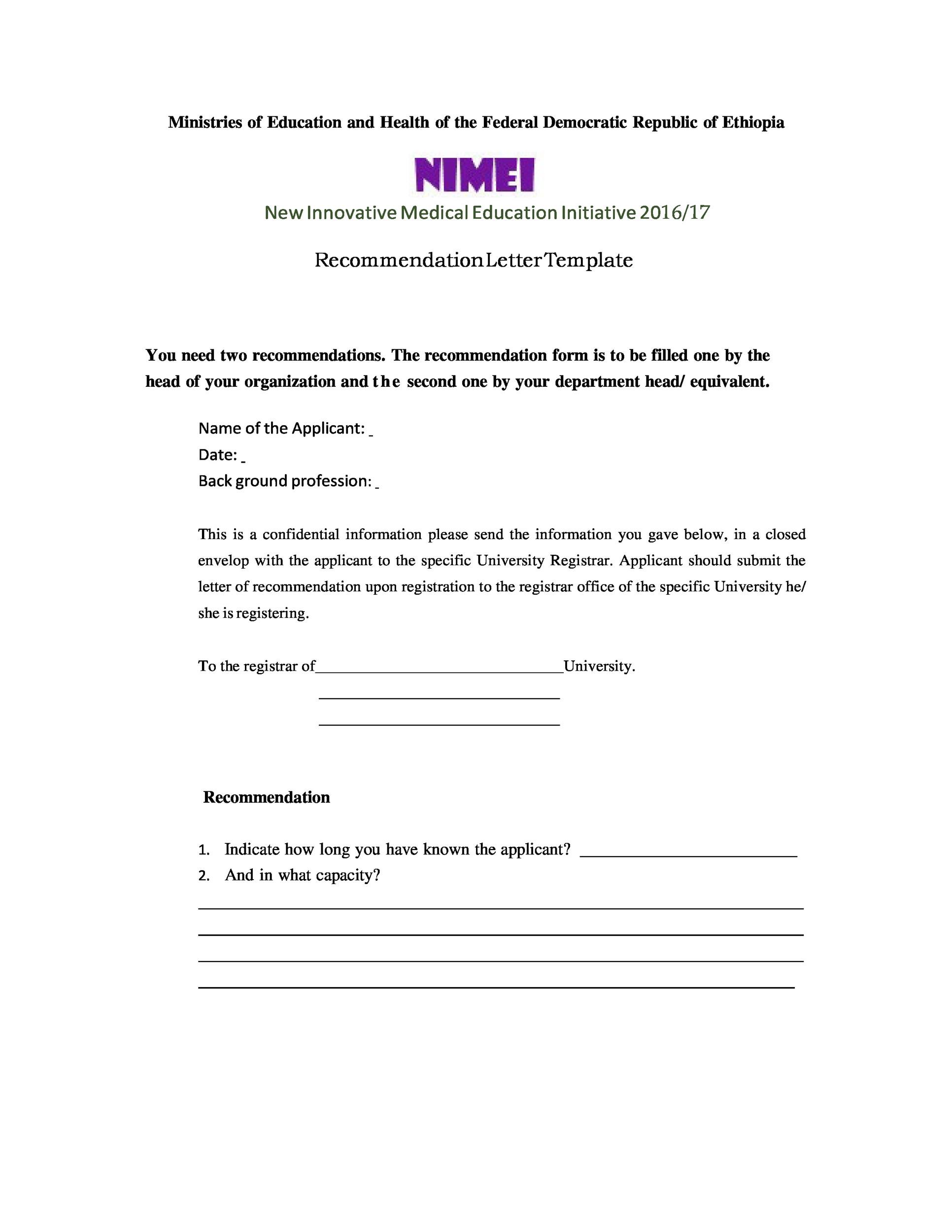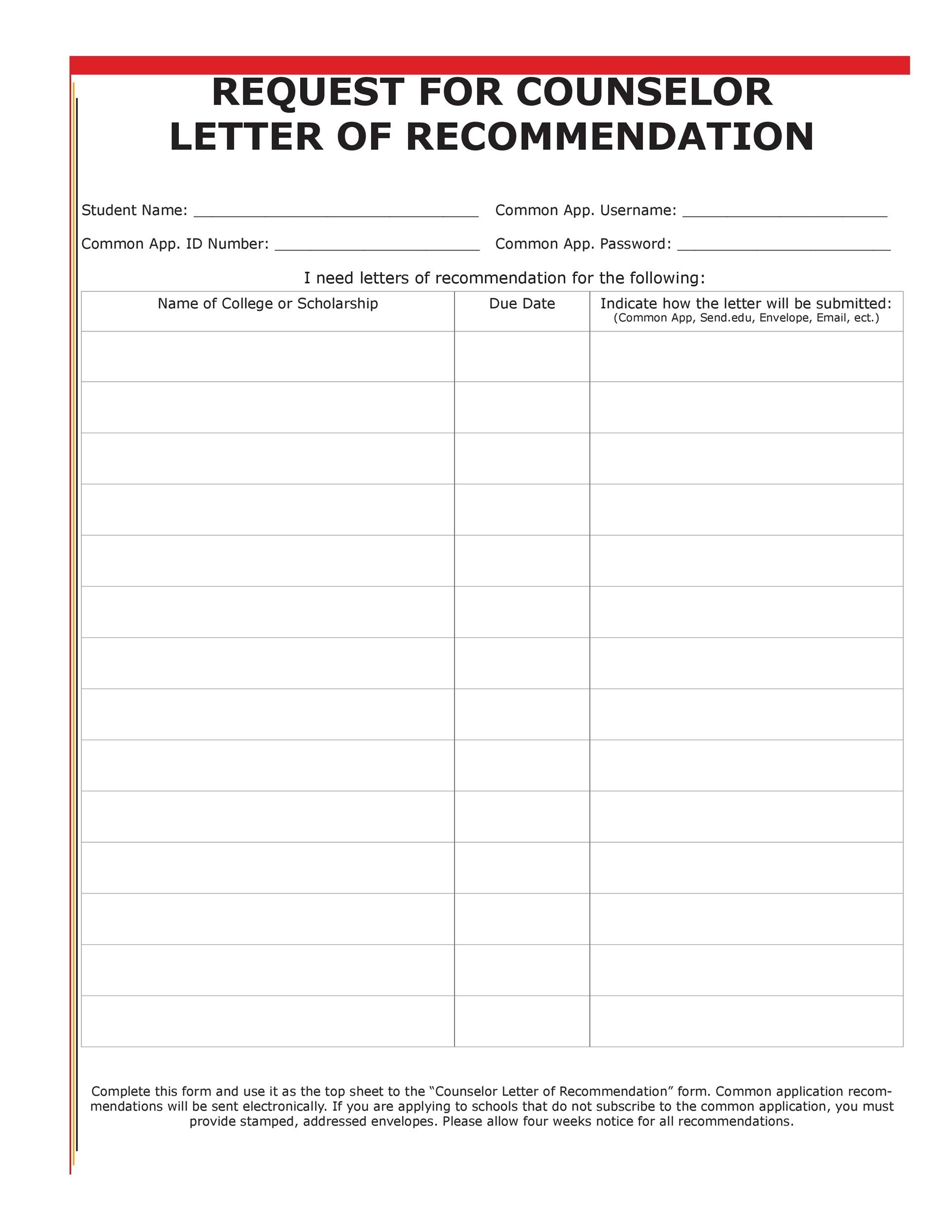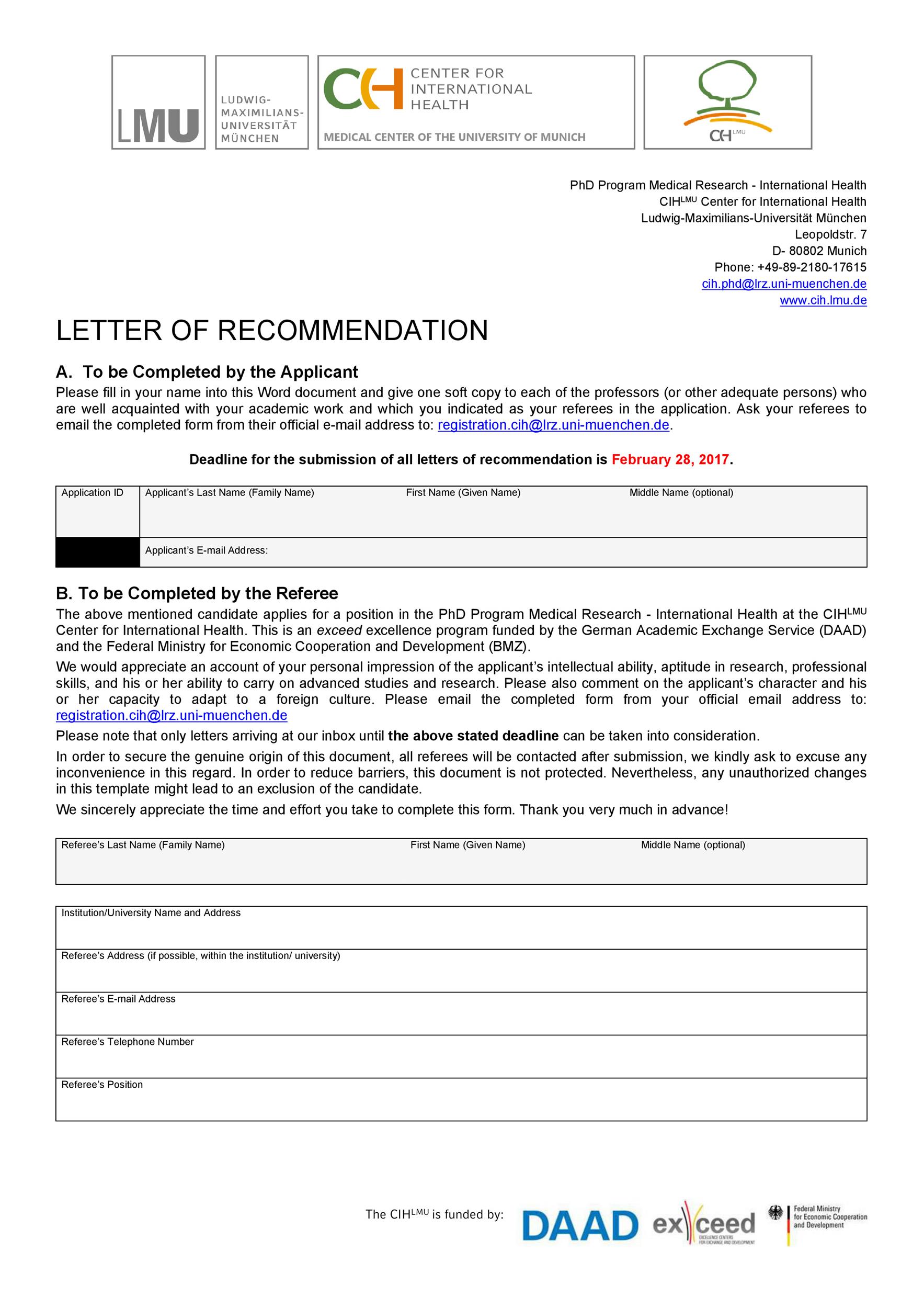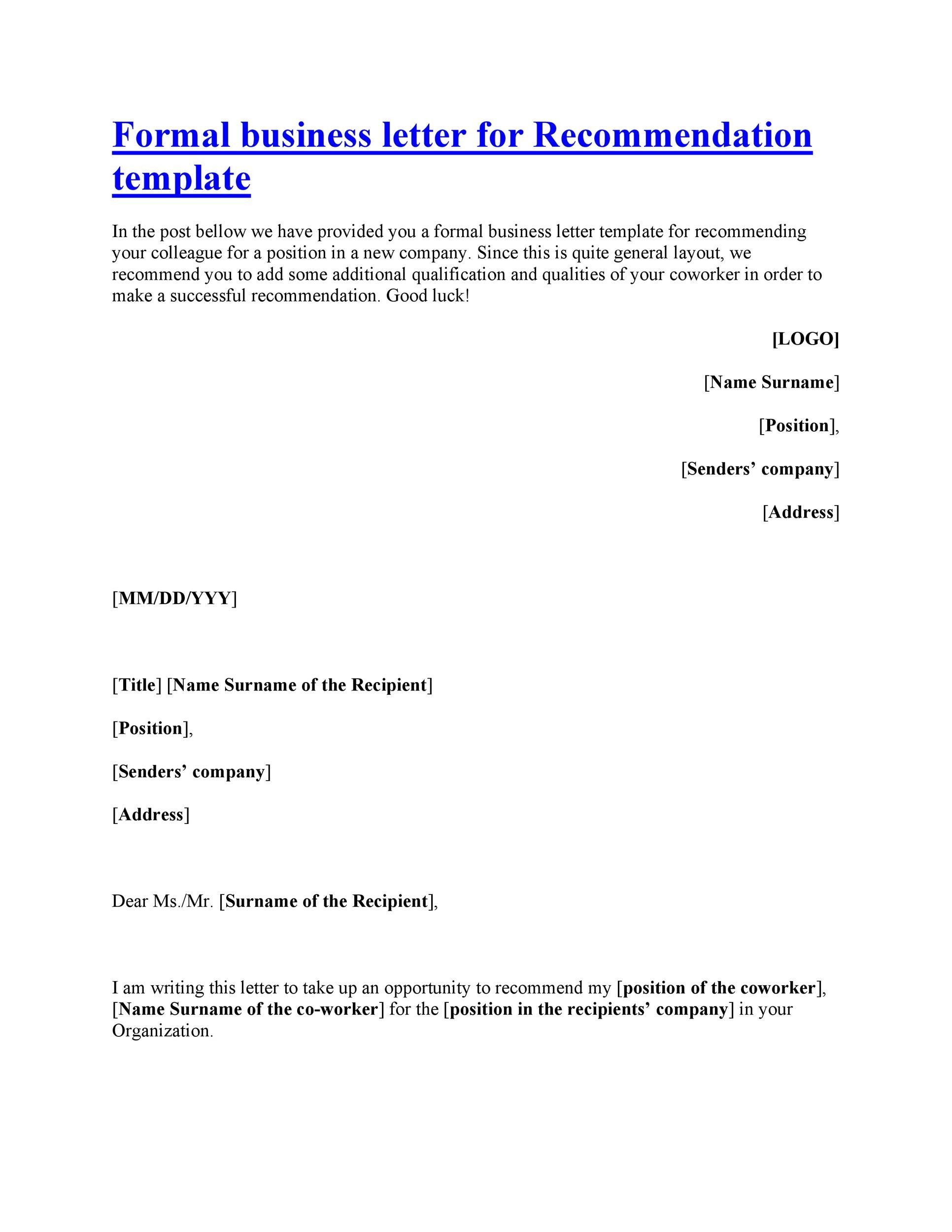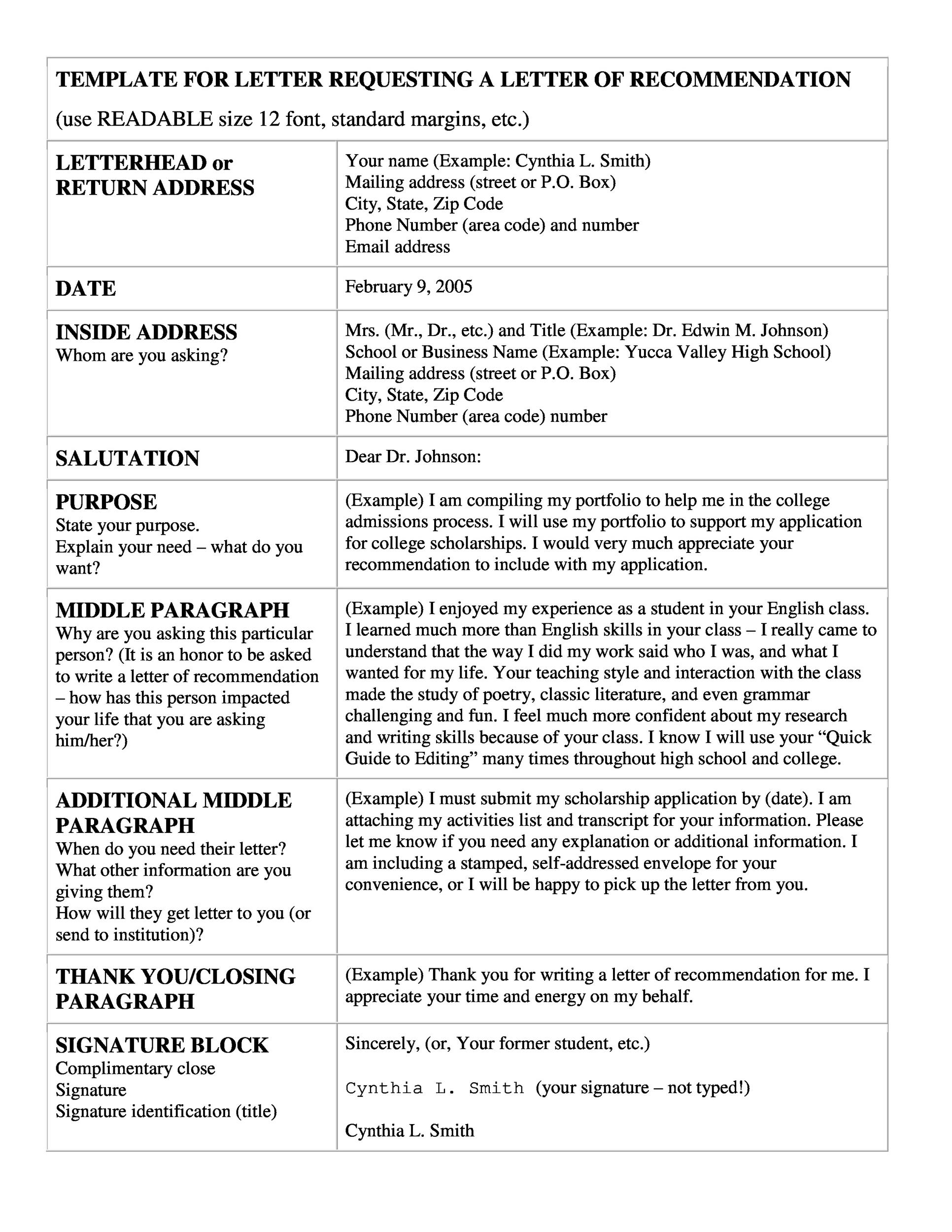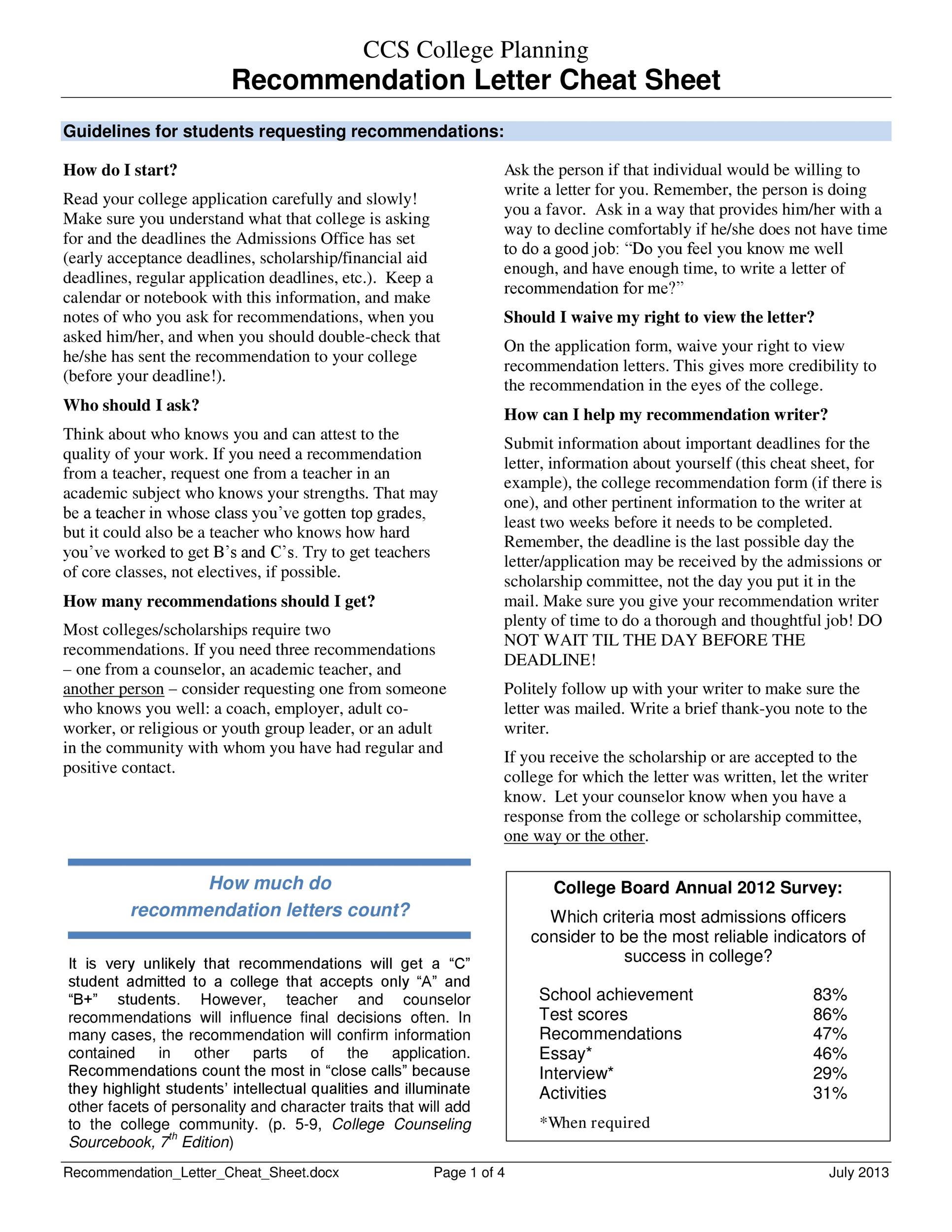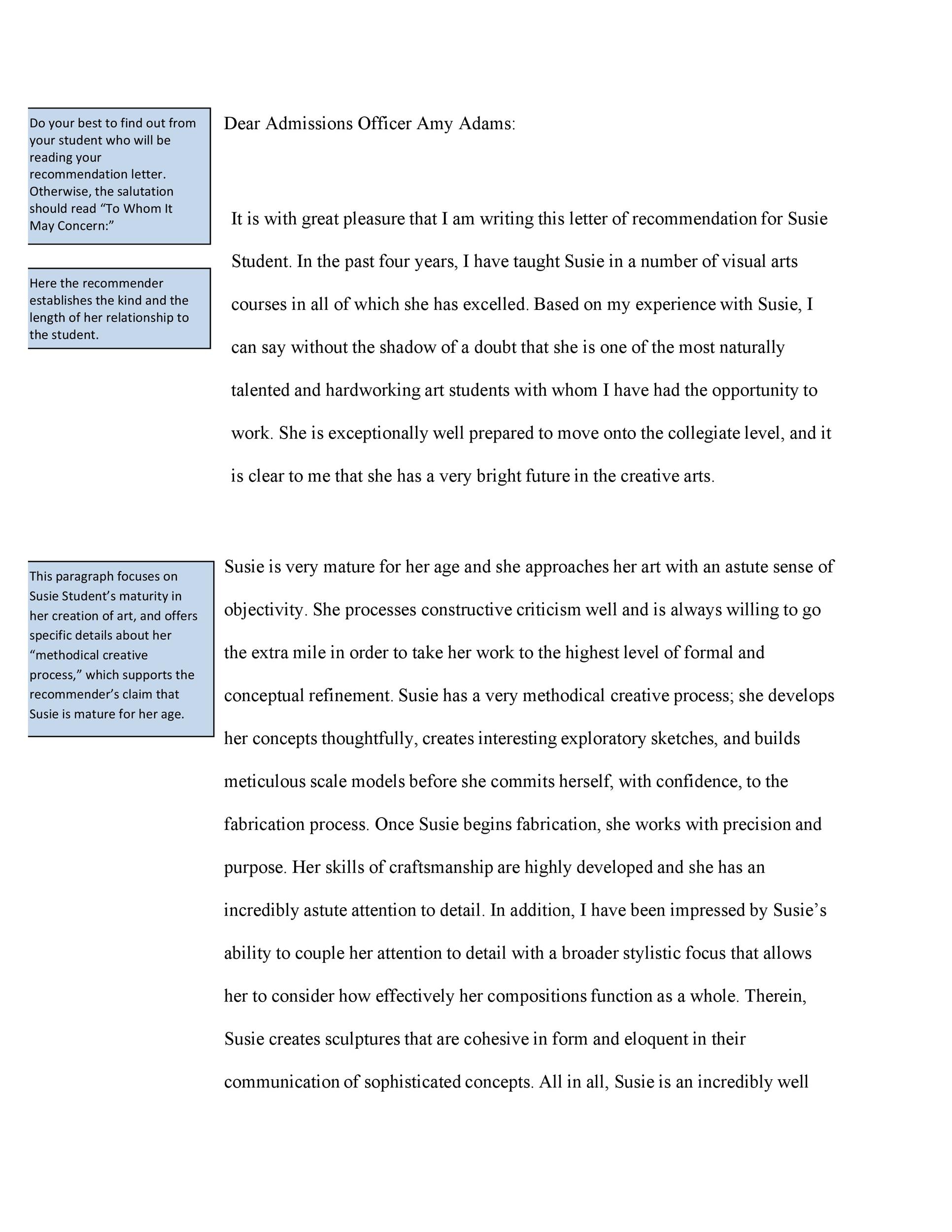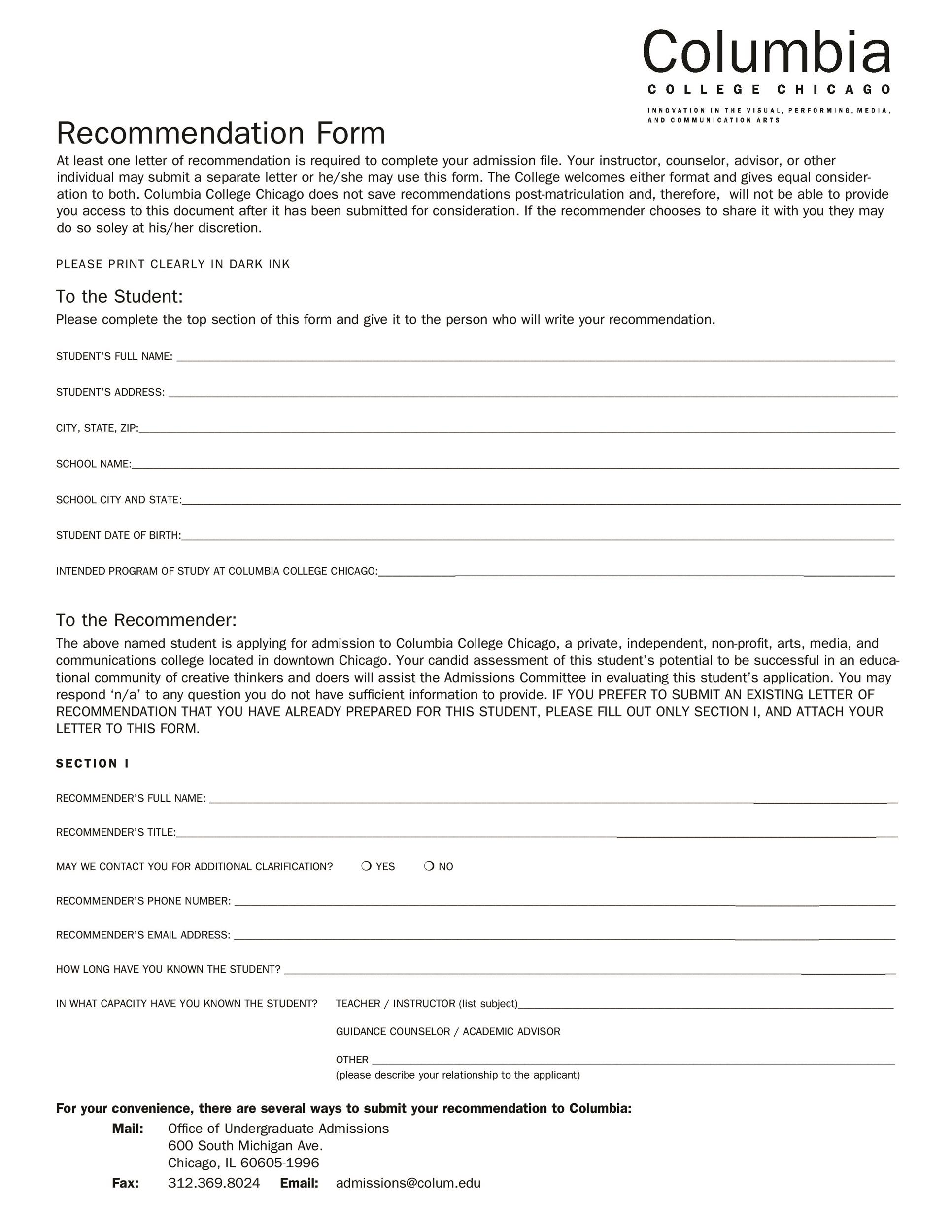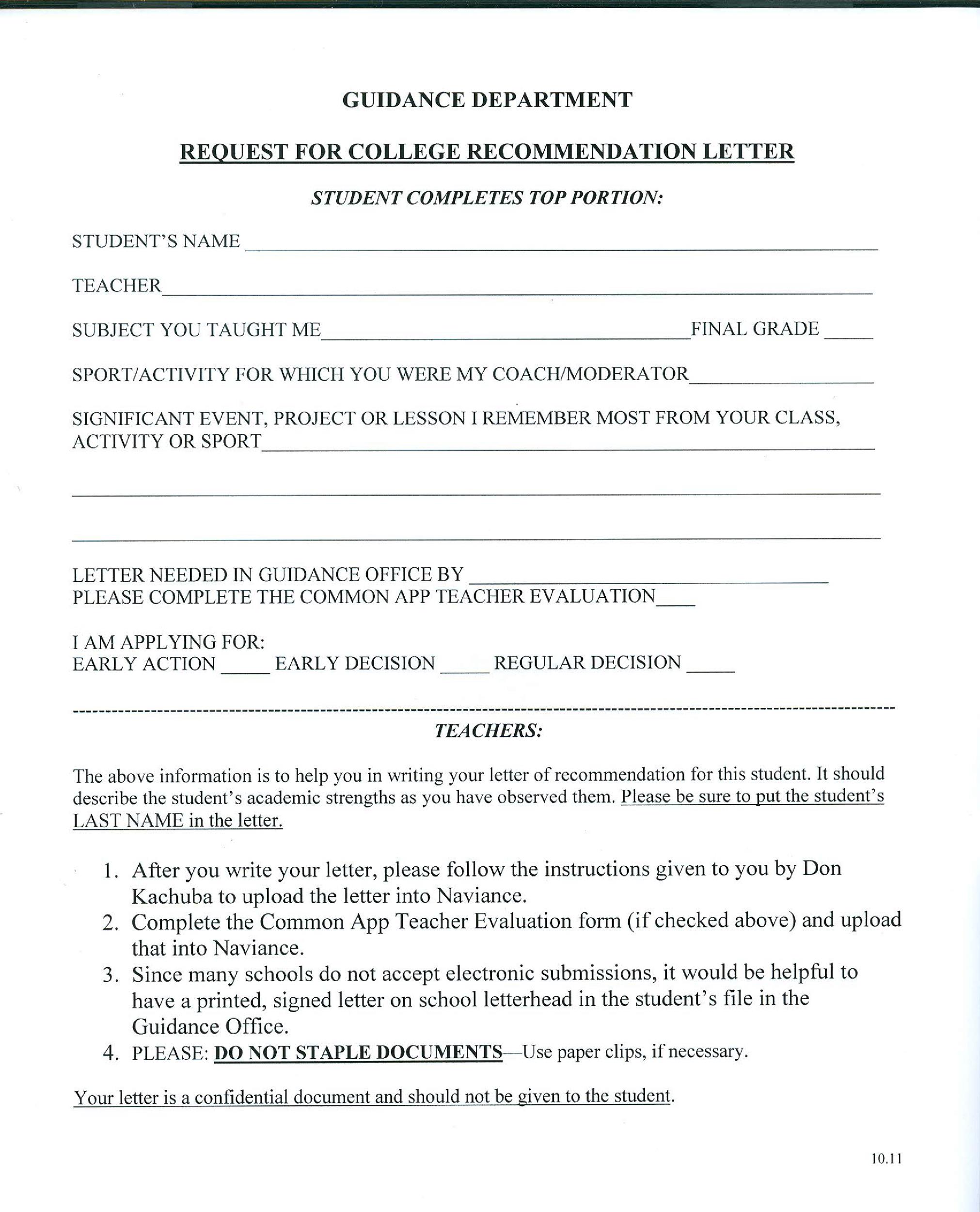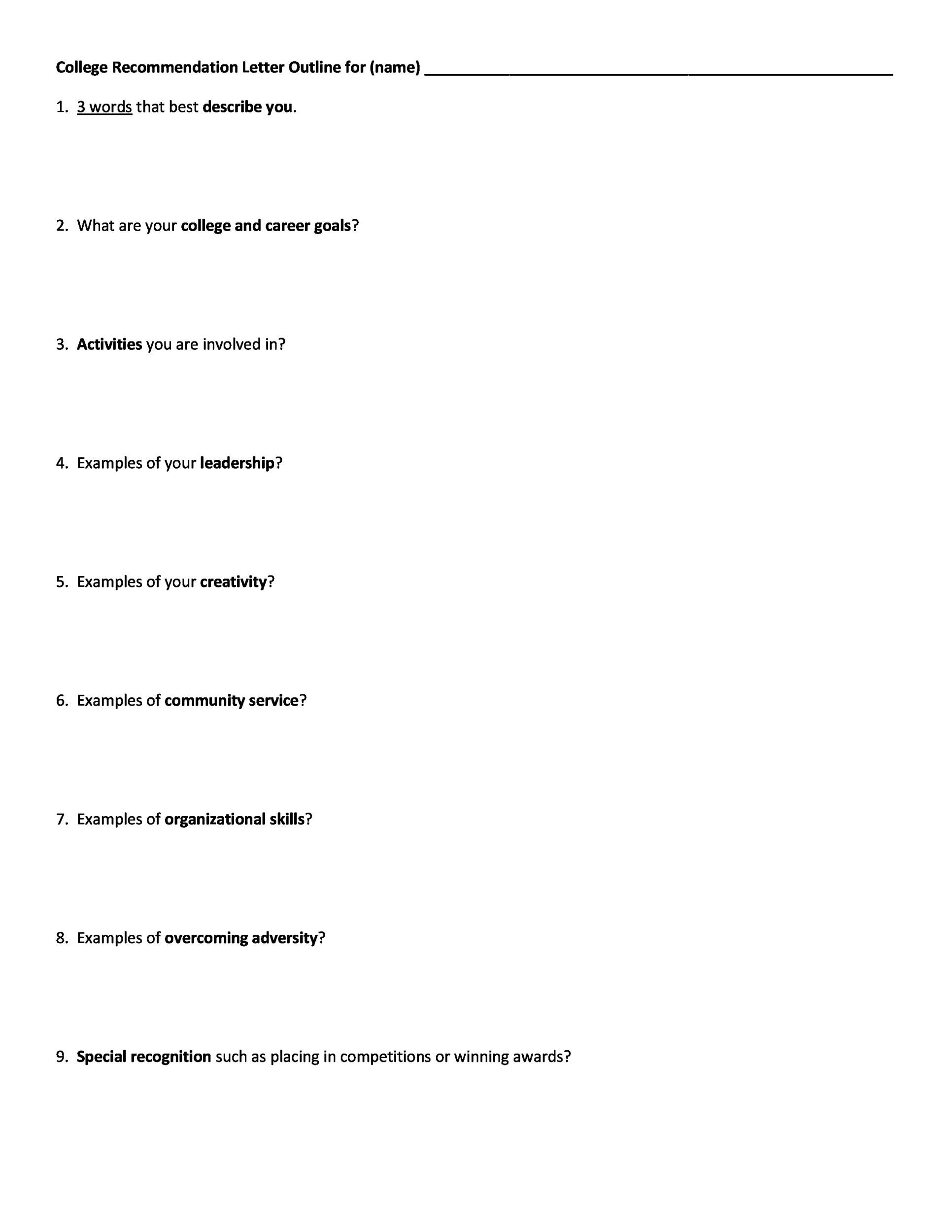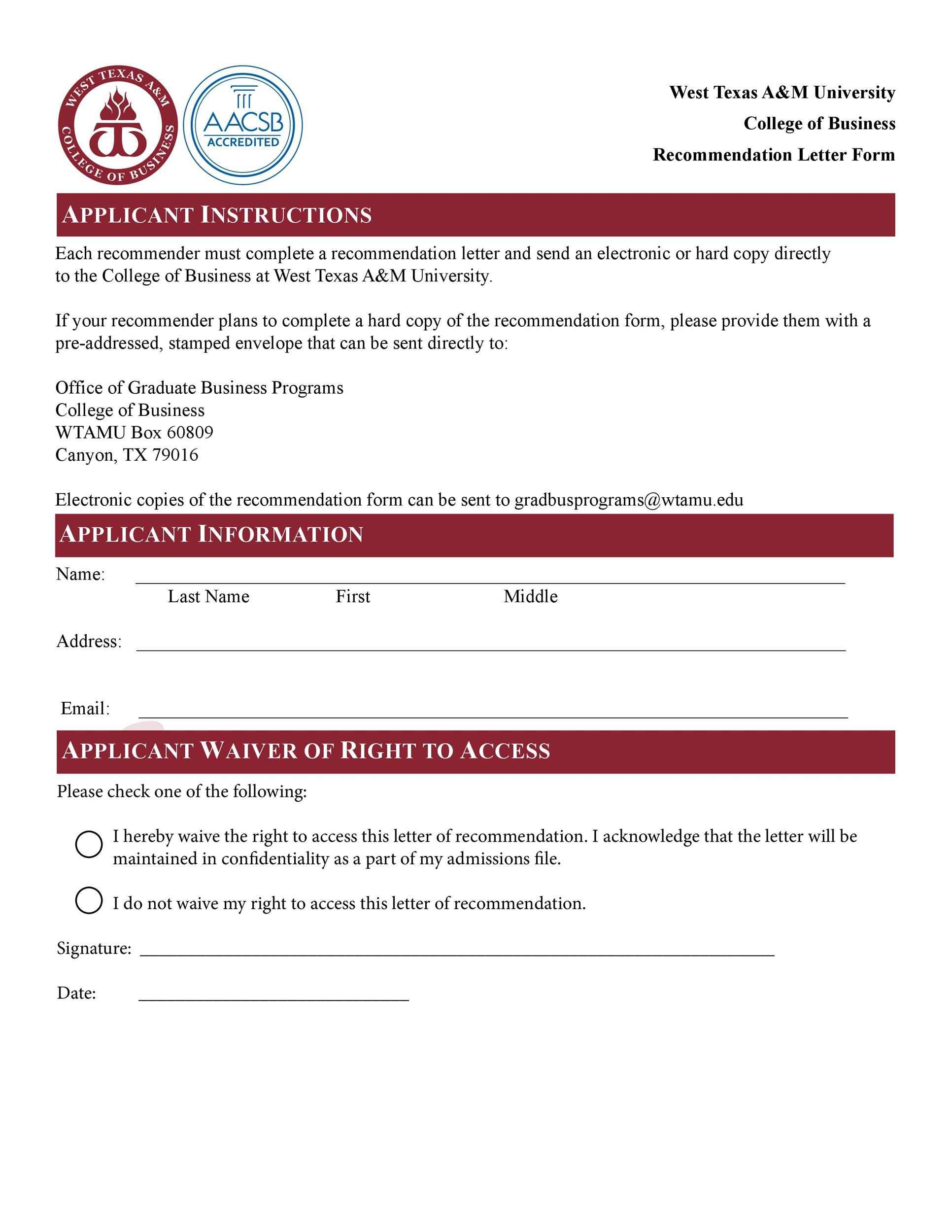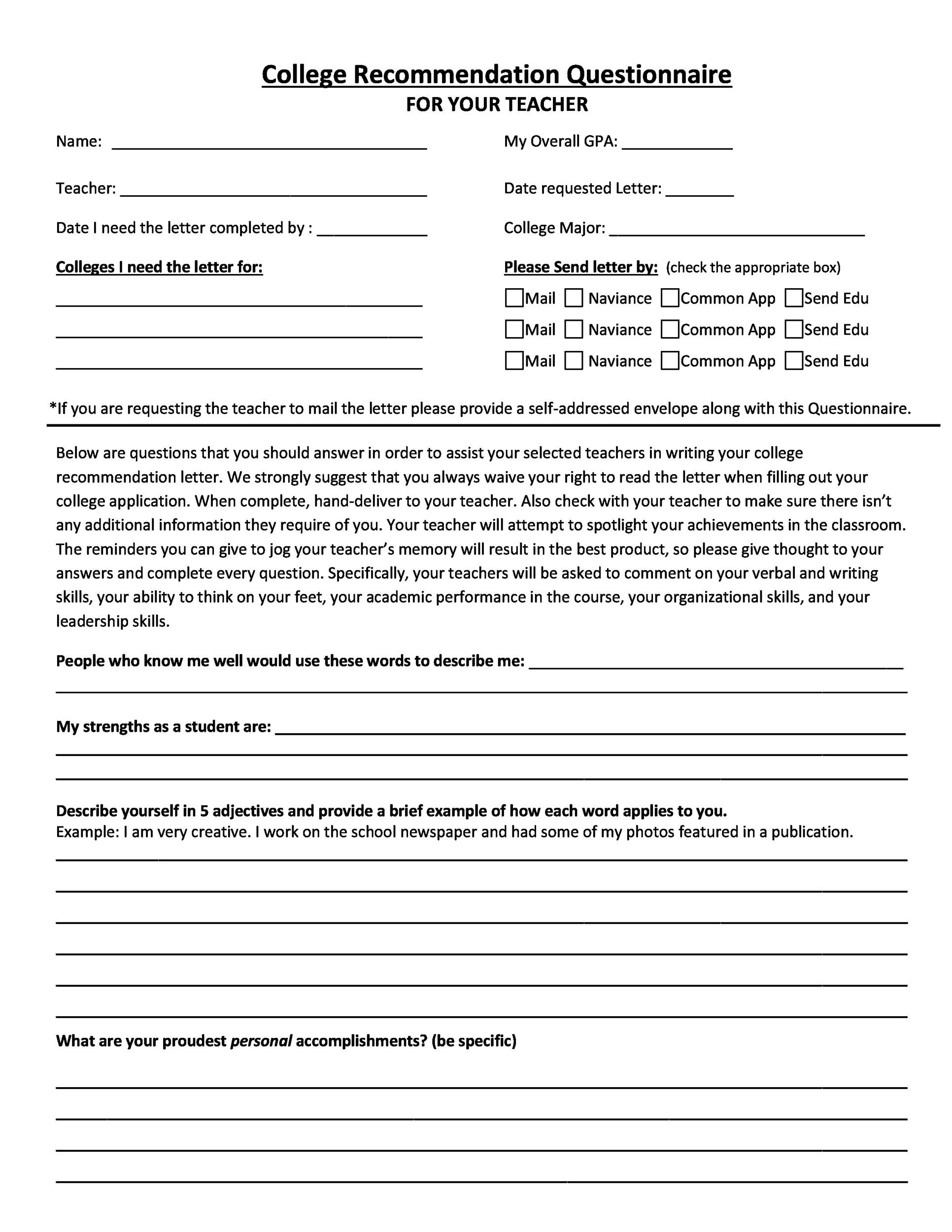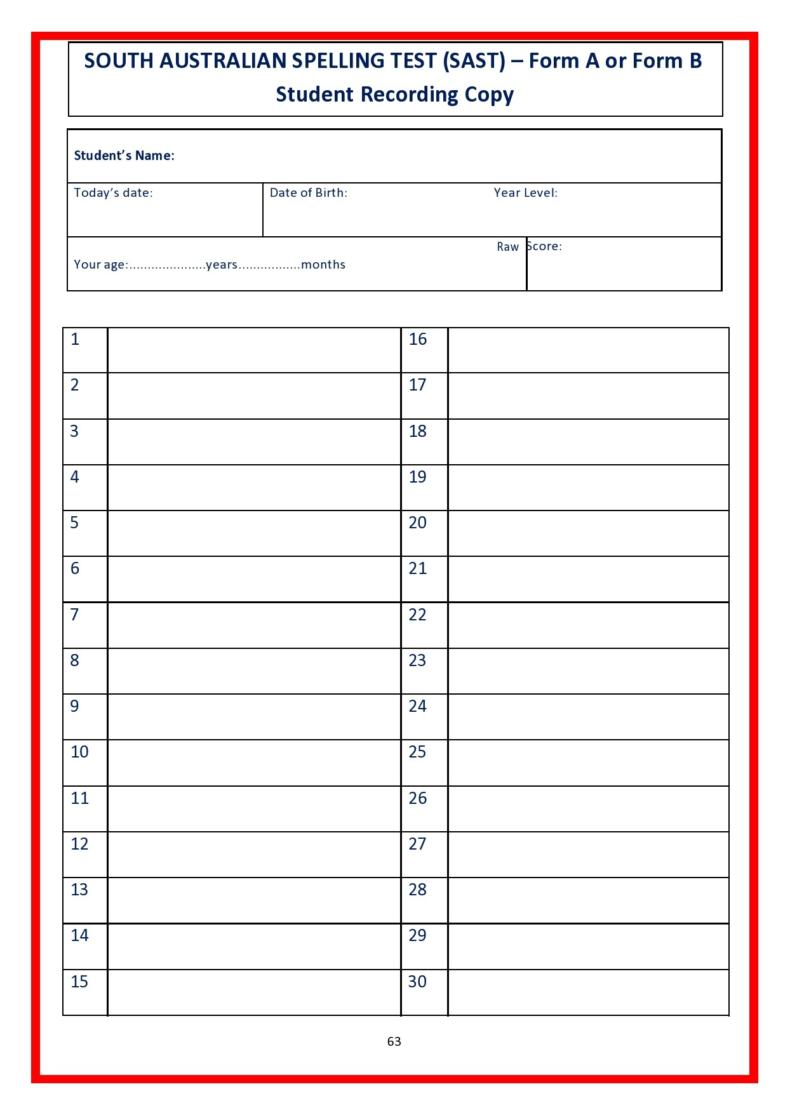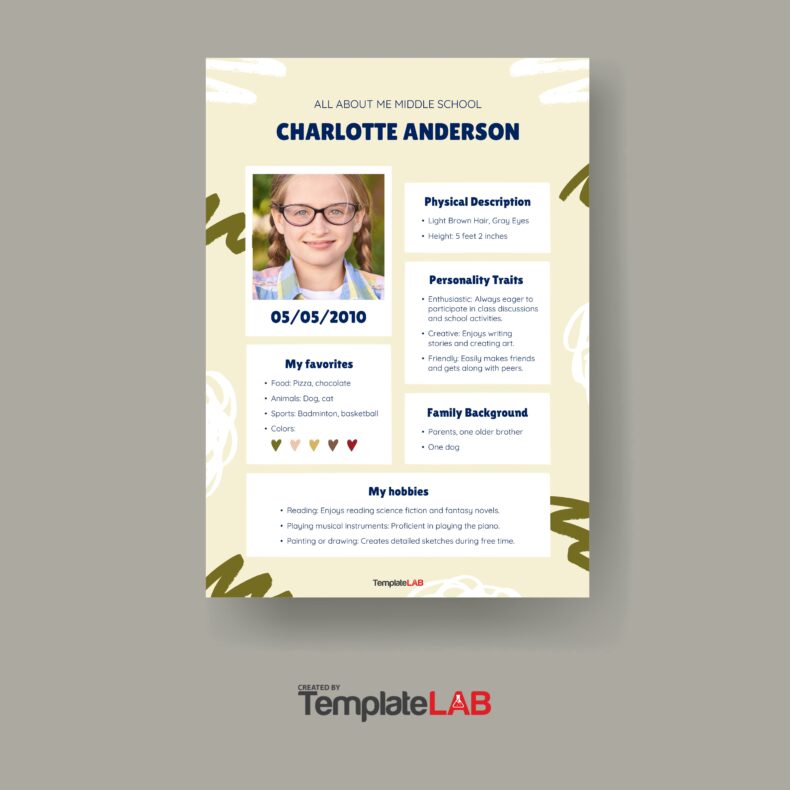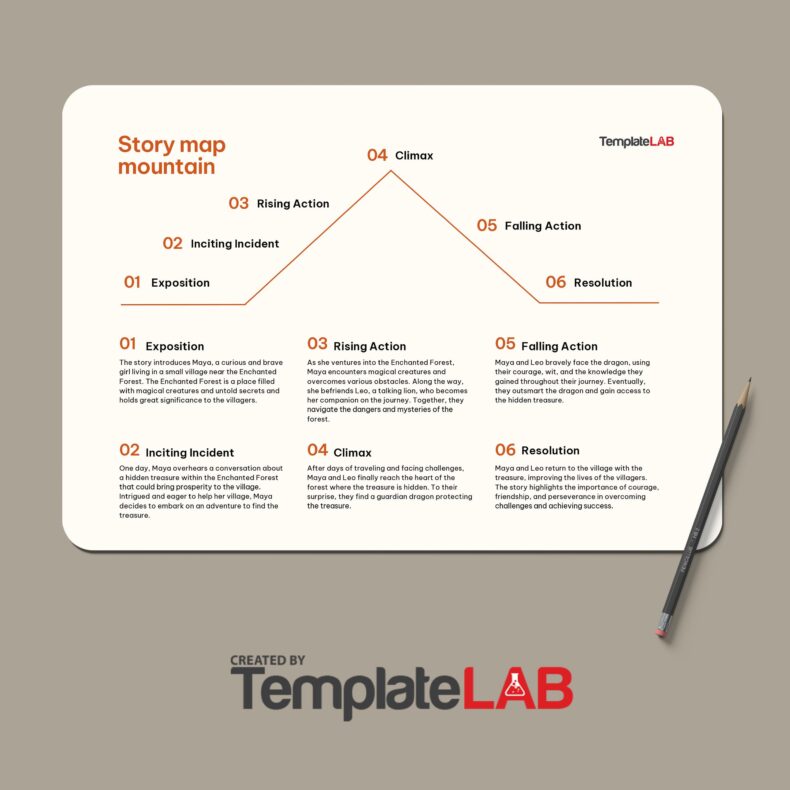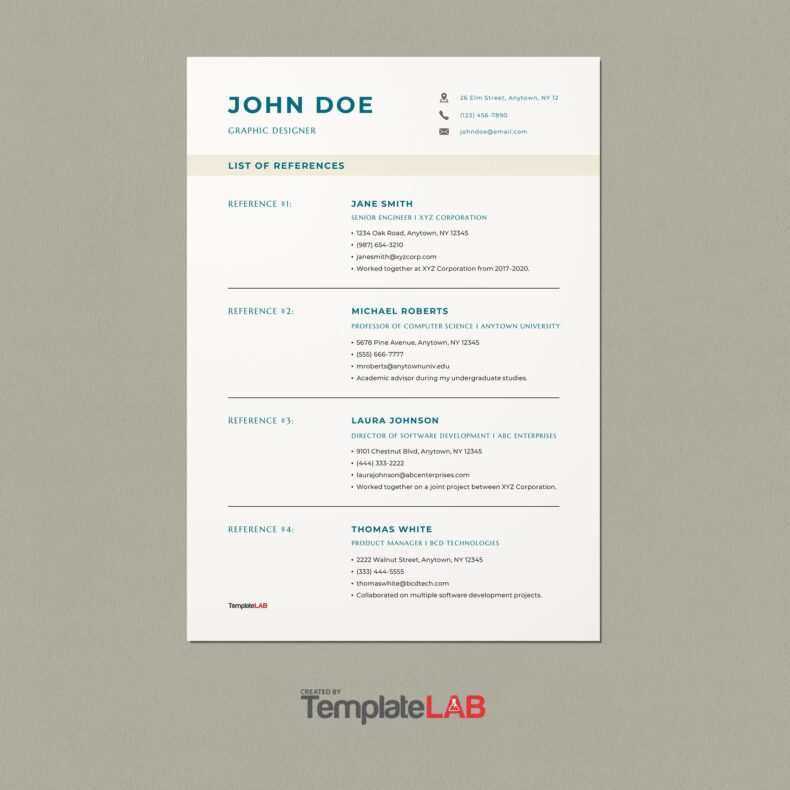Securing the ideal candidate for a job role is vital. Ensuring smooth operations within the organization and sustaining client relations requires an individual with proficiency in their tasks.
That’s why, whether you’re seeking employment or enrolling in an educational program, it’s essential to highlight your skills and experience during the application phase.
Table of Contents
- 1 Letter of Recommendation Templates
- 2 What is a Letter of Recommendation
- 3 Sample Letter of Recommendation
- 4 What is Included in a Recommendation Letter
- 5 Who should you approach if you need a letter of recommendation?
- 6 Letter of Recommendation Examples
- 7 Benefits of Recommendation Letters
- 8 Tips on How to Create Your Own Reference Letter
- 9 Letter of Recommendation for college
- 10 Recommendation Letter Example
- 11 Letter of Recommendation Samples
- 12 Writing Tips
- 13 Conclusion
A previous colleague, employer, teacher, or client can provide a recommendation on your behalf. They can do this with a letter of recommendation by talking about the traits and skills that make them a good applicant for the job, college, or graduate program you’re applying for.
You can impress a potential employer and land more interviews by giving your application materials more legitimacy with a solid letter of recommendation.
In this article, we’ll unpack the best ways for you to create a unique recommendation letter that stands out.
Letter of Recommendation Templates
What is a Letter of Recommendation
A formal letter of recommendation is a document that describes someone’s suitability for a certain position. It does this by highlighting their strengths, assets, and accomplishments as an individual.
It’s usually written by someone who can attest to that person’s academic or professional accomplishments, like an old coworker or professor.
In some letters, the names of former coworkers or managers can be added as references to vouch for a candidate’s talents as an employee or student.
This letter is at least one page and is typically addressed to a hiring manager or admissions officer who is evaluating a potential applicant for employment, a scholarship, or admission.
Sample Letter of Recommendation
What is Included in a Recommendation Letter
Every recommendation letter is unique. For example, someone applying for a job would add past employers as a reference. Whereas someone applying for a scholarship would add details of their lecturers or professors. For the most part, every recommendation letter has the following information:
- A brief introduction
The person providing the recommendation letter introduces themselves and describes their relationship to the applicant.
Usually, the opening paragraph describes how well and how long the writer has known you.
It should be clear from the introduction section that you and the writer have known each other long enough for them to write a glowing recommendation letter for you. - Summary of qualities
They can also include a summary of any relevant professional or personal experience and how it relates to the recipient.
When appropriate, they can offer examples of your abilities and accomplishments. In the case of a paralegal application, for instance, the person writing your recommendations can include your attention to detail and client-relations abilities. - Personal narrative
In this section, the author can elucidate why they believe you are the ideal candidate for the desired position. They should detail the reasons underlying your suitability for the role and highlight one or two distinctive attributes that set you apart.
The writer must know the candidate well enough to judge their personality and provide positive feedback. A thorough letter can go over things like reliability and consideration for others at work. - A personal anecdote
Having the writer describe specific examples of when they saw you use your abilities to overcome a difficulty helps put your credentials in more context. This can assist hiring managers in having a more accurate view of your competence and give your application’s claims and information more weight. - Closing statement
The writer will need to include a summary of why you’re a good fit for the position in the closing statement. Writers may restate the relevant qualifications for the job you’re seeking towards the end of the letter.
This section of the letter integrates your qualifications with the job description or other requirements given by the company, and it employs precise language to match those requirements. - Contact information
Request the author to provide their personal contact details, ensuring the reader can reach out for further insights about you.
They can place this information either as a header at the beginning of the recommendation or in a concluding sentence at the end. - Signature
This section will include the name of the writer and confirms the authenticity of the letter. After completing the letter of recommendation, the author can send the letter to the applicant for submission. Alternatively, they can send it to the hiring manager, admissions officer, or any other party that has requested it.
Even though references on an application are often sufficient, a prospective employer could demand a more forceful letter of support.
A letter of recommendation is required for jobs that request a large amount of trust and competence or are competitive.
For instance, you might send reference letters along with your cover letter or CV if you’re applying for a job in the financial or medical industry.
Who should you approach if you need a letter of recommendation?
When considering who to ask for a letter of recommendation, think about someone who can confirm your skills and experience. Make sure that whoever you choose can authoritatively comment on the caliber of your work and commitment.
The ideal people to seek a letter of reference or recommendation include the following:
- Former managers
- Former supervisors or superiors
- Past Mentors
- Former professors
- Former teaching assistants
- Former lab supervisors
Think about the connections you’ve made throughout your time at work and in school when deciding who to ask.
Choose someone who is equally invested in your achievement and who you know would present you in a very favorable way.
The perfect recommendation letters would be provided by someone who:
- Is familiar with your work and has a favorable opinion of it.
- Possesses the time necessary to develop a letter that will genuinely impress a hiring manager.
- Has a reputation that will be valuable to the employer or admissions officer or is in a position of authority.
The majority of people won’t have any trouble assisting you. However, some might feel a bit pressed for time and ask you to write up your own reference letter for them to sign.
If this happens, try to put yourself in their shoes. Write the sample letter as though you were them and think back on the relationship and conversations you’ve had.
It’s easy to get carried away when writing your own letter, so try sticking to only facts. Simply highlight your accomplishments and provide detailed examples of your skills by performing an honest self-evaluation.
Letter of Recommendation Examples
Benefits of Recommendation Letters
Your qualifications can be raised by including a letter of recommendation with your application documents in the following ways:
- Providing background
The most important skills are listed in a resume, but a letter of recommendation dives further into how you use and apply those skills.
For example, the writer can describe how you used this expertise to assist a company in overcoming an issue that might pique the interest of hiring managers. - Increasing credibility
Including first-hand testimonials from a previous employer might help your accomplishments seem more credible.
Having backing from a respected figure in your field can greatly enhance your job search prospects.
This is particularly beneficial if you’re relatively new to the industry and are seeking to bolster your relevant experience. - Demonstrating loyalty
If a letter of reference is not required for a job application, making the extra effort to request one might demonstrate to hiring managers that you are dedicated to your work and passionate about it.
Additionally, this can assist in demonstrating your soft abilities, such as perseverance and commitment. It also provides you the chance to show that your previous job valued you and that you can bring the same knowledge and dedication to your new workplace.
Tips on How to Create Your Own Reference Letter
Although you should encourage the person writing the letter to be as creative as possible, you should also make suggestions for how to make the letter work best for the position you’re going for.
The following are some effective techniques for writing an attractive recommendation letter.
- Ask someone in a position of authority to write it
A letter of recommendation from a former boss or business owner can be more persuasive than one from a coworker.
Leaders might give your application materials more credibility because of their position and experience in the business. - Send the job advert to the writer
Your writer can write a more persuasive letter if they are familiar with the demands of the position you’re applying for.
If the job description for a financial analyst includes having great communication skills, for instance, the cover letter can discuss how the applicant can clearly explain complex financial information to clients. - Tell them about your accomplishments and skills
Reminding your writer of your major achievements will help them produce a stronger letter, even if it has been months or even years since you worked together.
For instance, request that your writer note in the letter that you were named “Employee of the Year” by your prior employer.
Please send the writer your resume. Your resume can act as a reminder of your experience if the person hasn’t worked with you recently.
Additionally, doing so could provide them with a more thorough understanding of your career history, which could be useful for their recommendation letter. - Analyze the letter for errors
After thanking your letter writer for their time and generosity, consider developing a list of any adjustments that need to be made. Then, politely ask them to make the changes.
Additionally, you can ask a friend or coworker to peer edit it and provide feedback to ensure the spelling and punctuation adhere to industry standards.
Letter of Recommendation for college
Recommendation Letter Example
Whether you’re writing it for a student or someone looking for a job, your letter should follow a similar format. We have created a simple, free recommendation letter template to use as a guide while writing your own:
Dear Sir/Madam,
I have the pleasure of recommending (applicant name) without any reservation for (job title with company name or admission to institution name)
I, (your name), work at (your company’s name) and have been employed for (number of years) in (your field of work) and have seen many young people come and go. One who has stuck out amongst the rest is (applicant’s name). They have demonstrated exceptional talent within (field, skills, attributes, experience, class, project, etc) during our time together.
I was particularly impressed by their (positive attributes, such as a can-do attitude, leadership skills, organizational skills, etc.), and as a result of our collaboration, (applicants name) has advanced far beyond that of their peers.
(Applicants name) has always been a pleasure to work with because of their extremely optimistic attitude and (positive characteristics). Not only did I need and value (pronoun’s good characteristics and positive traits), but so did their peers, who often relied on them to get the job done.
I am confident that your (institution or company) would find (applicant name) to be a perfect fit. Not only does (applicant’s name) have the qualifications you’re looking for, but they will also work hard to establish themself as a valuable member of (institution or company) and advance it in any way they can.
Please feel free to contact me at (contact information) for any further questions or details. It would be a pleasure to go into more detail about my experience (working or studying) with (applicants name)
Warm regards/Sincerely/Kind regards,
Your name, company, and job title.
Letter of Recommendation Samples
Writing Tips
- Keep it positive – The letter should highlight that the candidate is perfect for the position. Try and stick to words that will have an impact on the reader.
- Keep it professional – Find or create a recommendation letter template similar to a business letter. Make sure to use professional and respectful language that’s easy to read.
- Focus on the important things – Highlight two to three of the candidate’s top achievements and provide examples to support their suitability for the position.
- Observe the guideline requests – Find out how to submit your letter from the candidate. Follow the guidelines and deadline requests to the letter to avoid jeopardizing the status of their application.
- Double-check your letter – Pay close attention to how people’s and companies’ names are spelled. Go through your completed letter to detect any grammatical issues.
Conclusion
Writing a letter of recommendation for someone is an honor and may determine whether or not they succeed in their applications.
If you ask someone to write you a letter, make sure to provide them with as much information as you can and include any pertinent information that can help you succeed.


